Be the first to know!
Join our list to be notified of new buildings and other discounts.
(*You can unsubscribe at any time.)
Join our list to be notified of new buildings and other discounts.
(*You can unsubscribe at any time.)
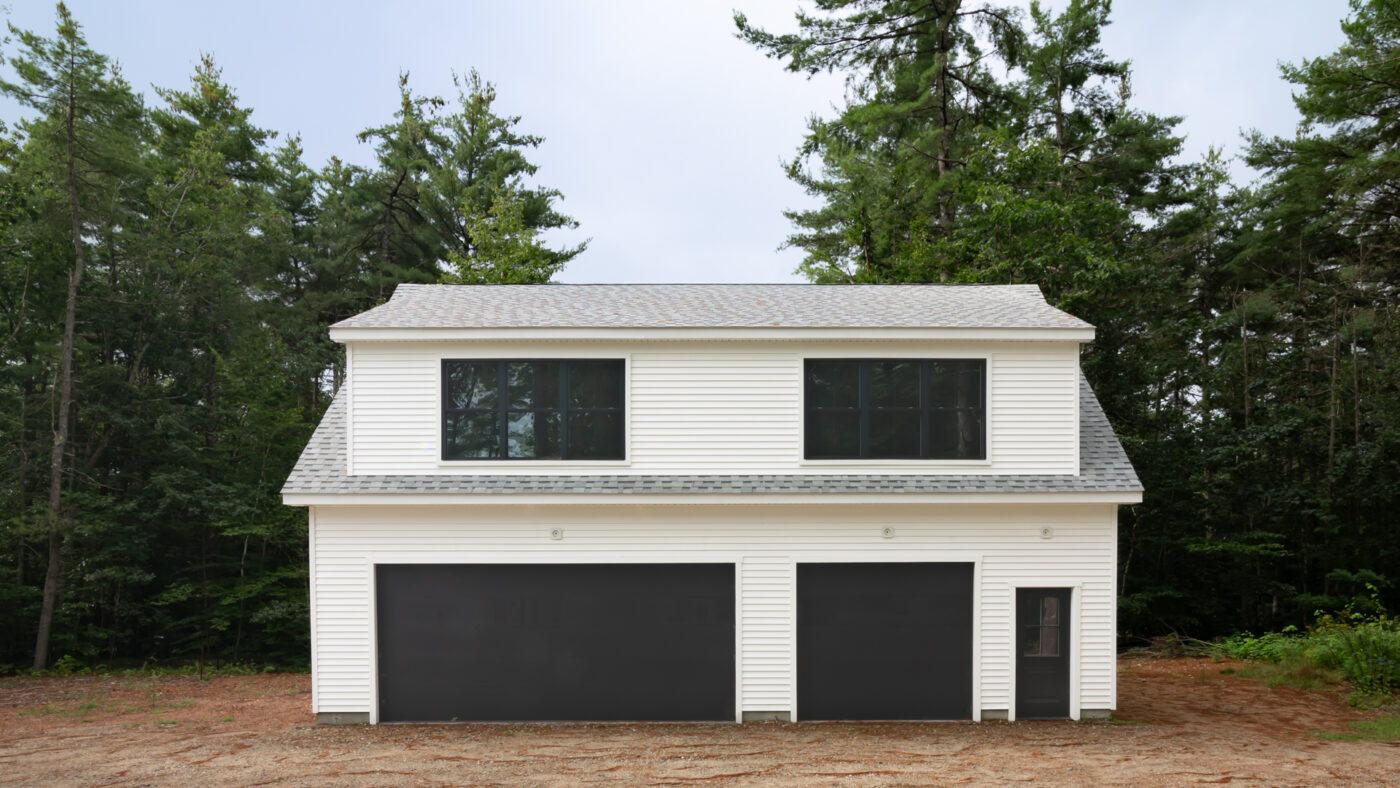
To put it simply, a detached garage can cost anywhere from $6,697 for a simple one-car garage up to $123,641+ for a customized multiple-car garage.
However, the question “What’s it going to cost me to build a detached garage?” is about as easy to answer as the question: “How much will a car cost?” There are an incredible number of variables that go into any detached garage project, and without defining those variables, it’s difficult to determine the projected cost.
From our experience building 1000s of detached garages over the past several decades, we can definitively say that fully- or partially-prefabricated garages offer the most bang for your buck. If you’re considering a detached garage, be sure to at least compare pricing on prefab garages before making your final purchase!
These days, the sizes and configurations of garages are almost limitless. If you’re planning to use your garage for vehicle storage, one of the biggest factors for determining how much it will cost to build a detached garage is how many wheels need a home in it.
The cost for a 12×20 one car garage ranges from $6,697 for a standard garage to $24,173 for a Legacy two-story garage. For a quick reference to the cost for different dimensions, look at the following table:
| Size | Low Price | High Price |
| 10×16 | $5,445 | $7,216 |
| 12×20 | $6,697 | $24,173 |
| 14×28 | $10,345 | $46,486 |
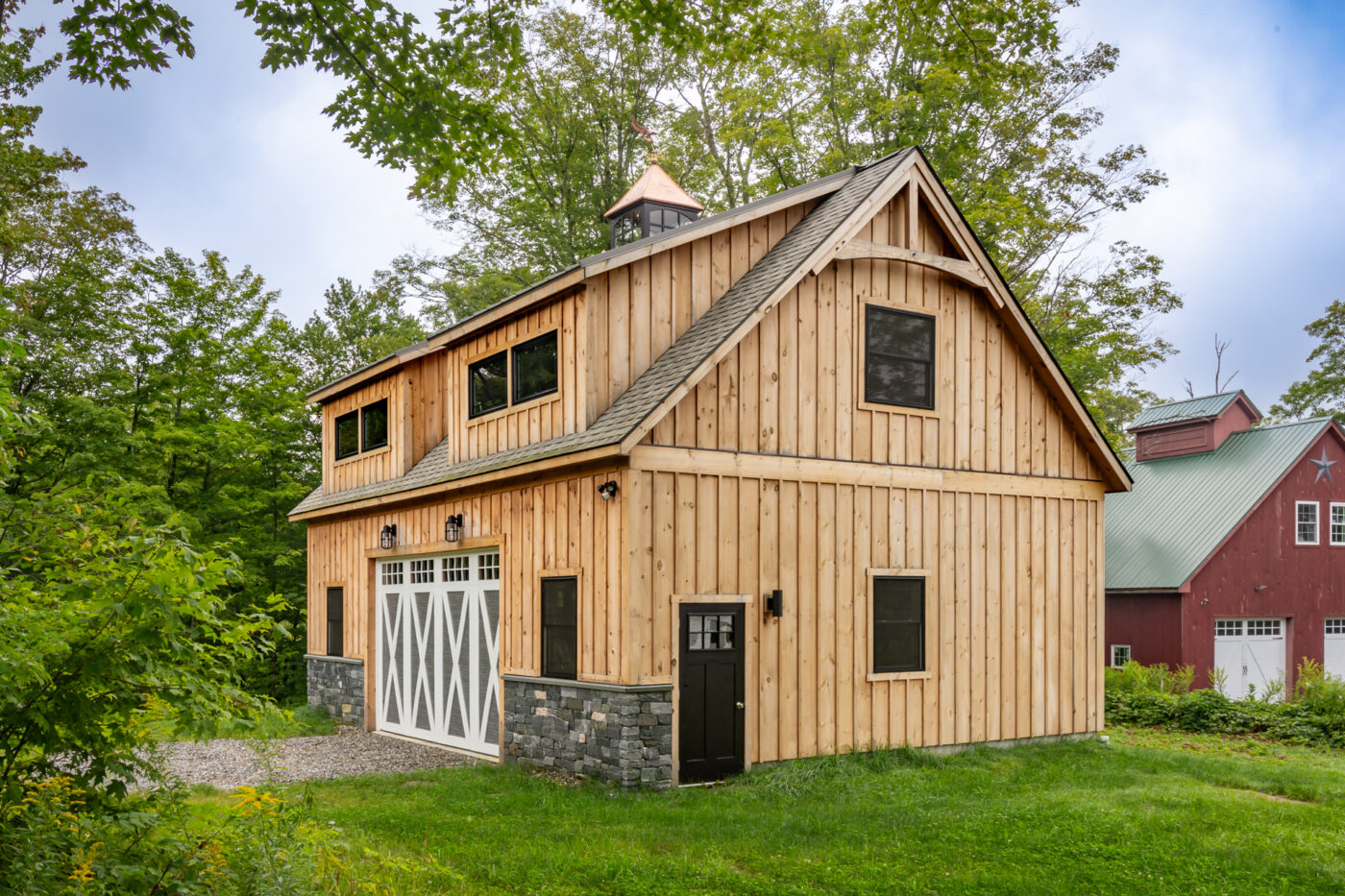
Now, if you want to see more sizes and a break-down of the specific style, siding, and number of stories for each one-car garage, we have created a table with you in mind!
| Size | Stories | Siding | Style | Price |
| 10×16 | 1 | Wood | Workshop | $5,445 |
| 10×16 | 1 | Vinyl | Workshop | $7,216 |
| 10×16 | 1 | Wood | Premier Dutch Barn | $9,290 |
| 10×16 | 1 | Clapboard | Premier Dutch Barn | $11,900 |
| 12×20 | 1 | Wood | Workshop | $6,697 |
| 12×20 | 1 | Vinyl | Workshop | $8,393 |
| 12×20 | 2 | Wood | Legacy Workshop | $17,981 |
| 12×20 | 2 | Clapboard | Legacy Workshop | $24,173 |
| 14×28 | 1 | Wood | Workshop | $10,345 |
| 14×28 | 1 | Vinyl | Workshop | $13,124 |
| 14×28 | 2 | Wood | Legacy Maxibarn | $35,272 |
| 14×28 | 2 | Clapboard | Legacy Maxibarn | $46,486 |
| 16×20 | 1 | Wood | Premier Workshop | $17,698 |
| 16×20 | 1 | Vinyl | Premier Workshop | $22,649 |
Please note the following:
The absolute smallest size you should even consider for a detached one-car garage is 10’x16’. However, this accommodates only a small car and allows very little extra maneuverability; we recommend single-car garages with a minimum width of 12′. A width of 14’ or 16’ gives much-needed space for opening doors and entering or exiting vehicles.
The cost for a 20×24 two-car detached garage ranges from $24,864 for a standard model to $49,025 for a Legacy Workshop garage.
Check out our table for detached two-car garage costs.
| Size | Low Price | High Price |
| 20×24 | $22,198 | $49,025 |
| 24×24 | $24,864 | $53,520 |
| 24×28 | $26,835 | $58,066 |
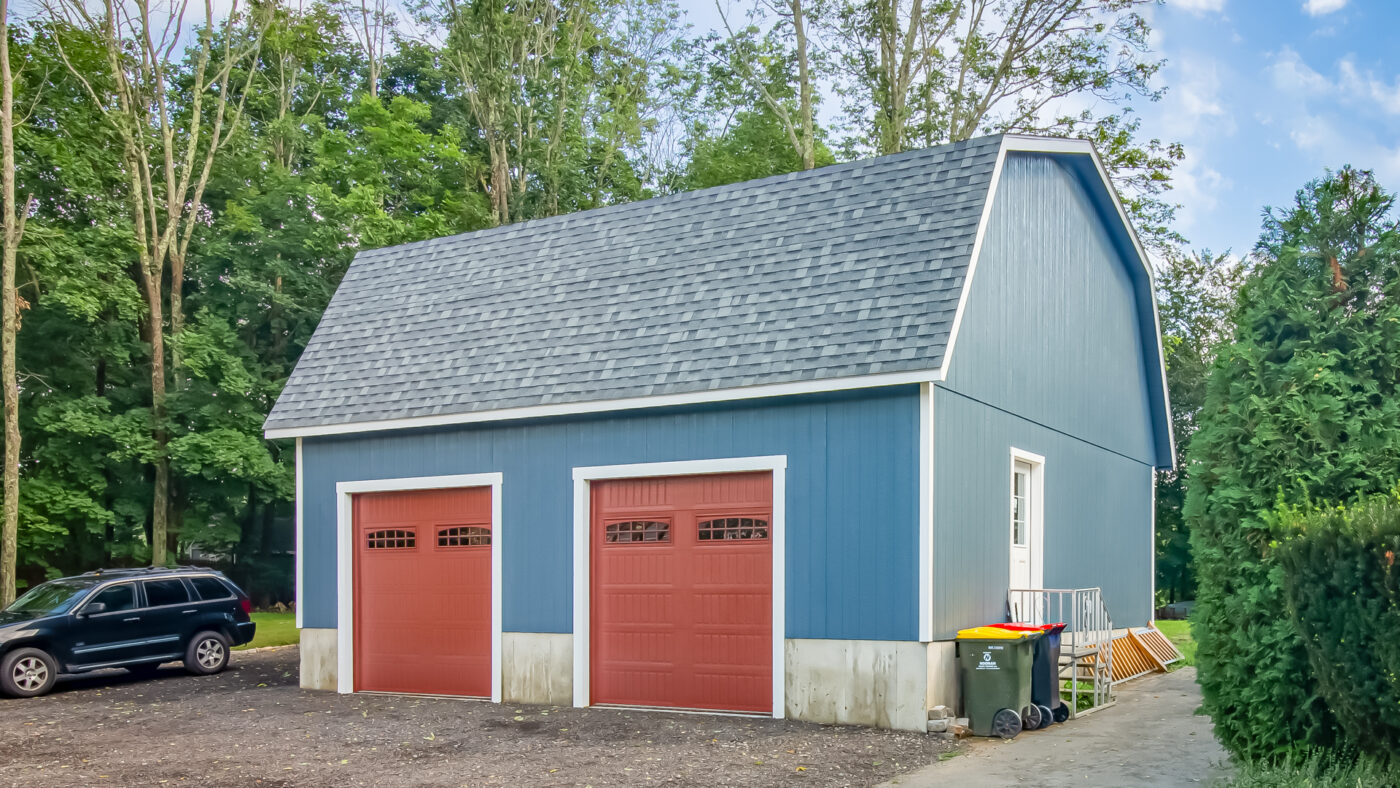
Okay, what about the details that contribute to the overall cost of a two-car detached garage? Glance over our table for a clearer understanding.
| Size | Stories | Siding | Style | Price |
| 20×24 | 1 | Wood | Workshop | $22,198 |
| 20×24 | 1 | Vinyl | Workshop | $27,387 |
| 20×24 | 2 | Wood | Legacy Workshop | $40,997 |
| 20×24 | 2 | Vinyl | Legacy Workshop | $49,025 |
| 24×24 | 1 | Wood | Workshop | $24,864 |
| 24×24 | 1 | Vinyl | Workshop | $30,692 |
| 24×24 | 2 | Wood | Legacy Workshop | $44,716 |
| 24×24 | 2 | Vinyl | Legacy Workshop | $53,520 |
| 24×28 | 1 | Wood | Workshop | $26,835 |
| 24×28 | 1 | Vinyl | Workshop | $33,129 |
| 24×28 | 2 | Wood | Legacy Workshop | $48,481 |
| 24×28 | 2 | Vinyl | Legacy Workshop | $58,066 |
| 28×30 | 1 | Wood | Workshop | $27,983 |
| 28×30 | 1 | Vinyl | Workshop | $35,022 |
| 28×30 | 2 | Wood | Legacy Workshop | $53,927 |
| 28×30 | 2 | Vinyl | Legacy Workshop | $64,641 |
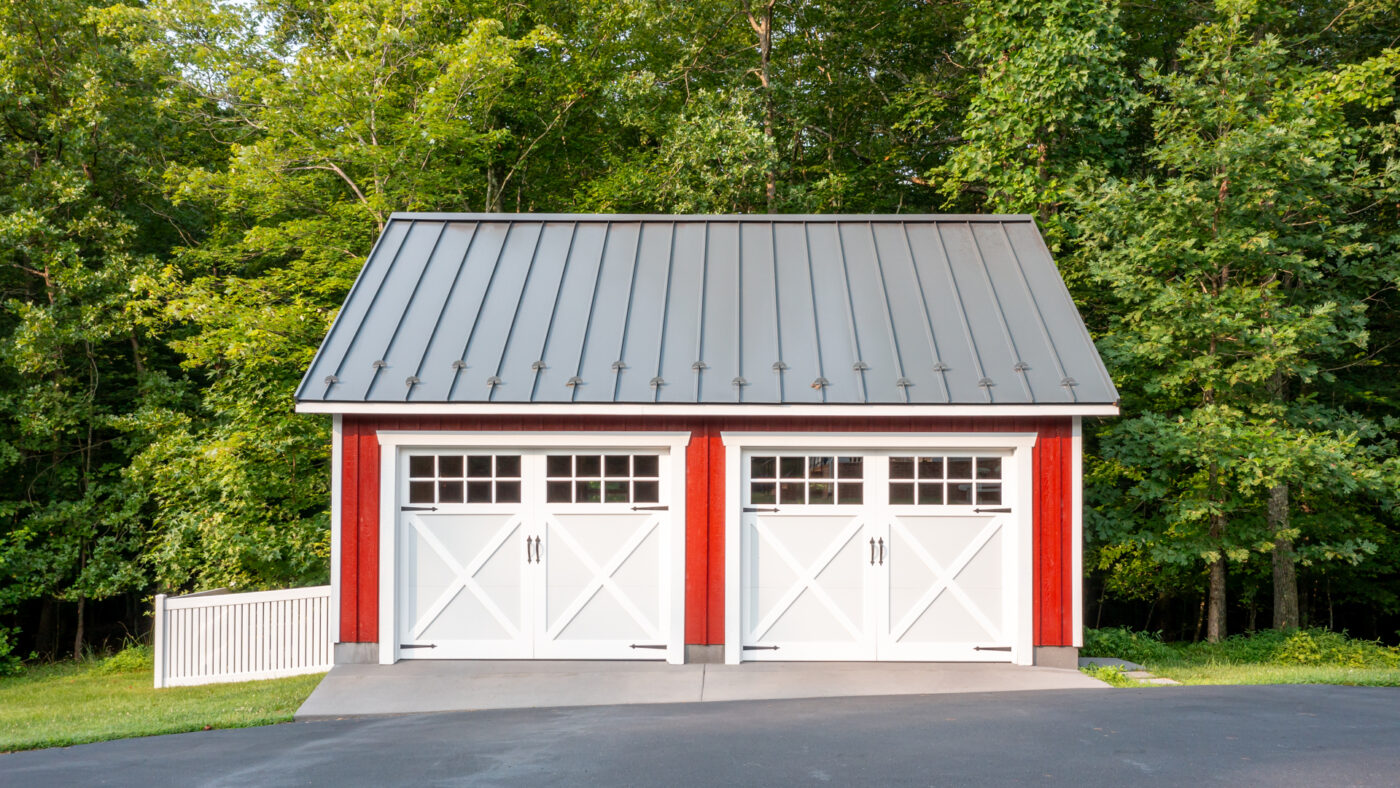
Take note: A 20’x24’ is the minimum-sized two-car garage anyone should consider. A 24’x24’ garage gives better flexibility and increasing the width to 28’ and the length to 30’ or more will give some additional storage space on the sides and back.
Prices for a very basic 20×36 three-car garage start around $28,508. We’ve created a table for a quick point of reference for different sized three-car garage prices.
| Size | Low Price | High Price |
| 20×36 | $28,508 | $61,740 |
| 24×40 | $75,691 | $85,791 |
| 28×48 | $44,984 | $91,681 |
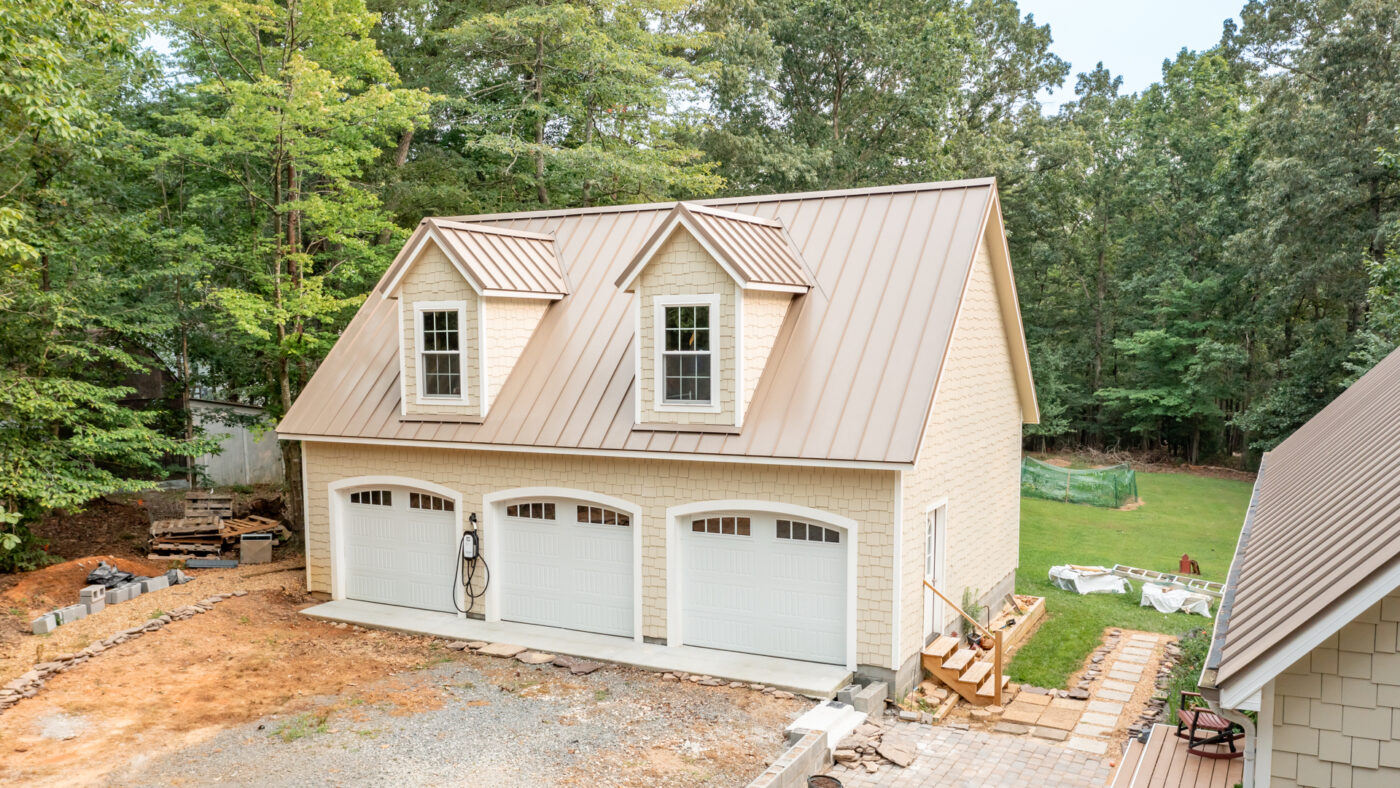
Of course, there are more details that go into the cost for detached three-car garages. In this table, we have outlined some of the things to consider when thinking about prices.
| Size | Stories | Siding | Style | Price |
| 20×36 | 1 | Wood | Workshop | $28,508 |
| 20×36 | 1 | Vinyl | Workshop | $34,971 |
| 20×36 | 2 | Wood | Legacy Workshop | $51,797 |
| 20×36 | 2 | Vinyl | Legacy Workshop | $61,740 |
| 24×40 | 2 | Wood | Legacy Maxibarn | $75,691 |
| 24×40 | 2 | Vinyl | Legacy Maxibarn | $85,791 |
| 28×48 | 1 | Wood | Workshop | $44,984 |
| 28×48 | 1 | Vinyl | Workshop | $56,380 |
| 28×48 | 2 | Wood | Legacy Workshop | $76,861 |
| 28×48 | 2 | Vinyl | Legacy Workshop | $91,681 |
A good rule of thumb is to increase your garage width by at least 12’ or the length by at least 20’ for every car that is added. There are multiple possible configurations for vehicle parking and garage door layout, so you will want to think about what will best match your available space.
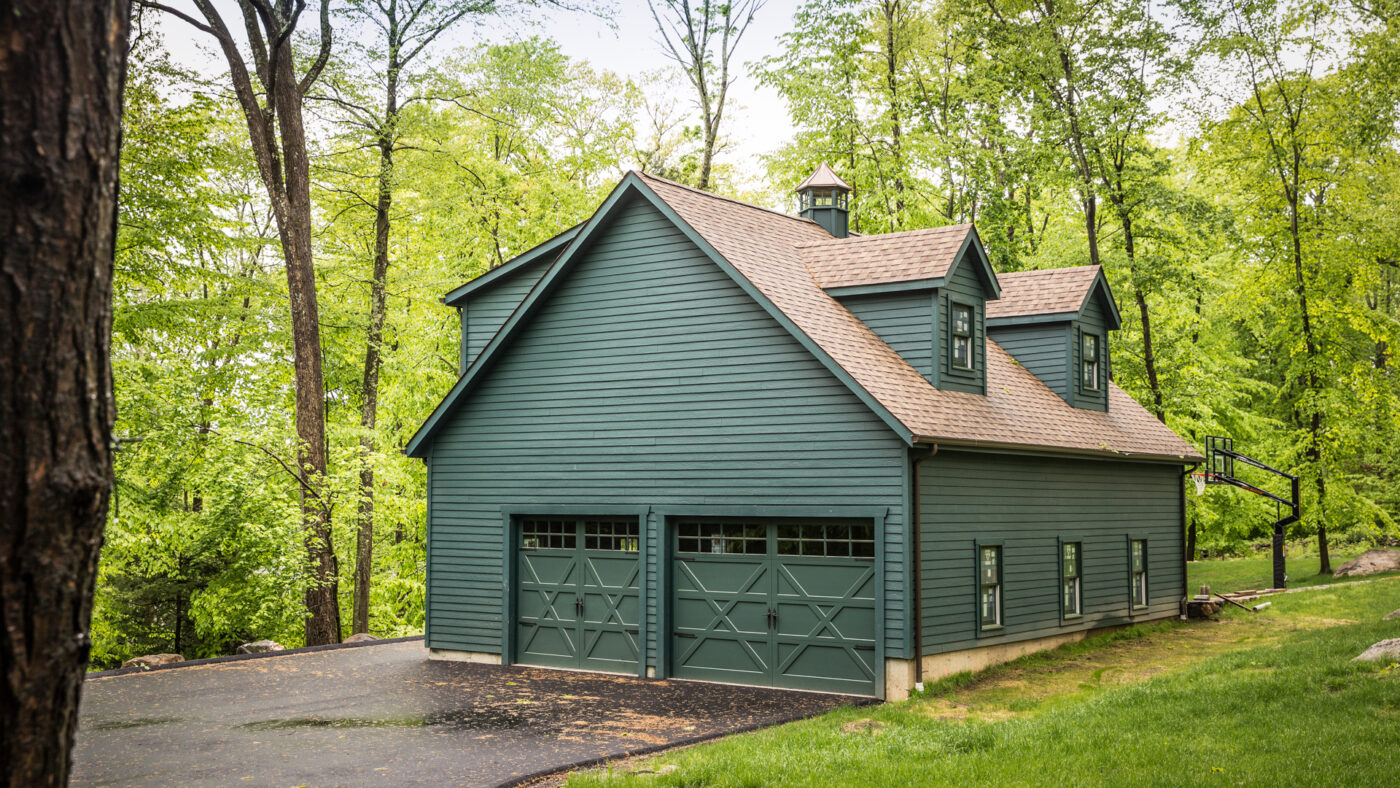
It’s important to weigh all the benefits and potential pitfalls of a major property upgrade before you invest your hard-earned cash in it! Here are both some pros and cons of detached garages (vs. attached garages):
Pros:
Cons
In general, however, the added flexibility of a detached garage more than pays for itself over time. You may want to consider pricing an attached and a detached garage just to compare.
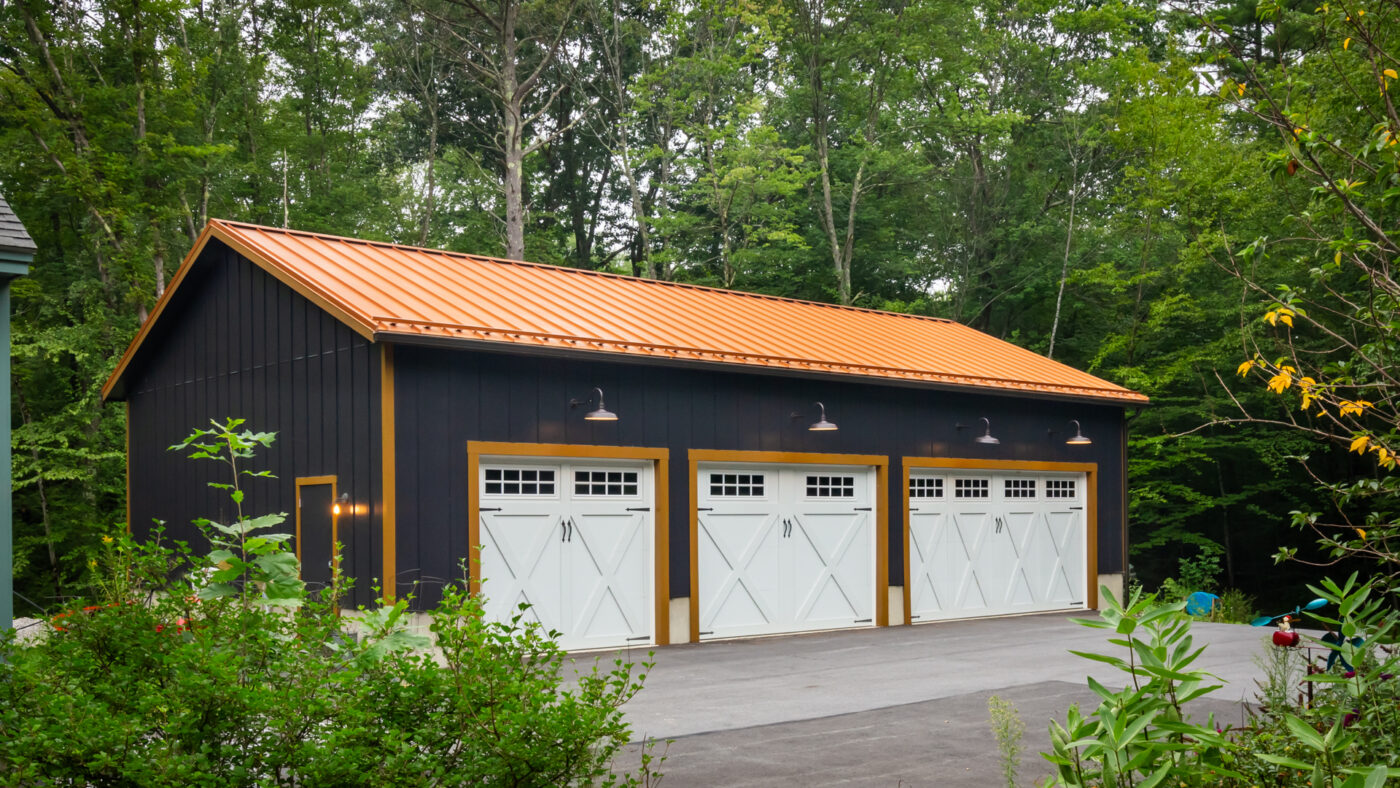
Once you’ve decided what size of garage you would like and the cost of the garage, it’s time to figure out how much it’s going to cost to build a detached garage. But, like any major investment, diving in without carefully calculating ALL your potential garage building expenses is a sure way to get burned!
What good is a garage if you can’t get to it? You definitely don’t want to go off-roading through your lawn every day! Ideally, you’ll be able to place your garage in such a way that you can maximize existing driveway space. However, you may need to extend your existing driveway or build a new one.
There are several options to choose from based on property layout, existing driveway surfaces, and budget (there’s that word again!). For a quick pricing reference, look over our chart here. But if you want more in-depth details, keep reading every description of the different driveway styles.
| 24×24 Driveway: | Low (Per Sq/Ft): | High (Per Sq/Ft): | Medium Price: |
| Gravel | $1.00 | $3.75 | $1,440 |
| Asphalt | $3 | $15 | $5,184 |
| Concrete | $4 | $18 | $6,336 |
| High-End | $10 | $40+ | $14,400 |
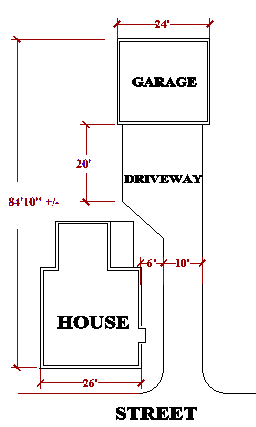
This is definitely the most affordable option. Gravel driveway prices for a detached garage project can differ greatly based on gravel size and color and the type of substrate used. Estimates for average gravel driveway costs range from $1.00 to $3.00/sq. ft. although it can cost around $3.75/sq. ft. on the upper end.
If you don’t want to worry about gravel washing away in heavy rain or plants sprouting through your driveway surface, asphalt is often the go-to driveway material. Asphalt generally requires less maintenance than gravel and many people prefer the lack of dust and finished look that it provides.
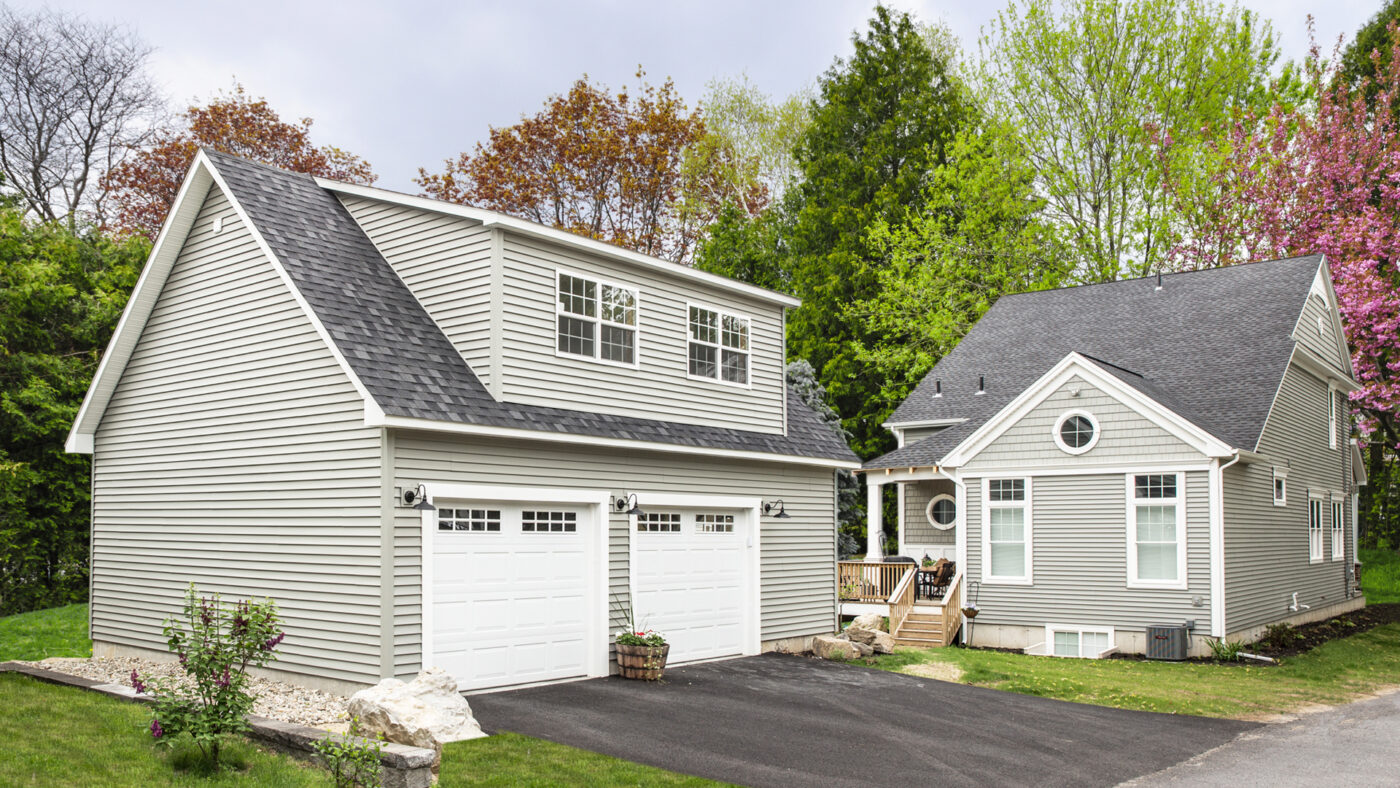
A good asphalt driveway will last 15-20+ years and usually cost between $3-$15/sq. ft. At the median of $9/sq. ft, a 24×24 gravel driveway would cost about $5,184. Again, don’t take my word for it, check with local contractors for current prices in your area!
A concrete driveway, while being the most expensive standard option, also provides the most in terms of durability. In addition, concrete can be tailored to your project with multiple colors and finish options available.
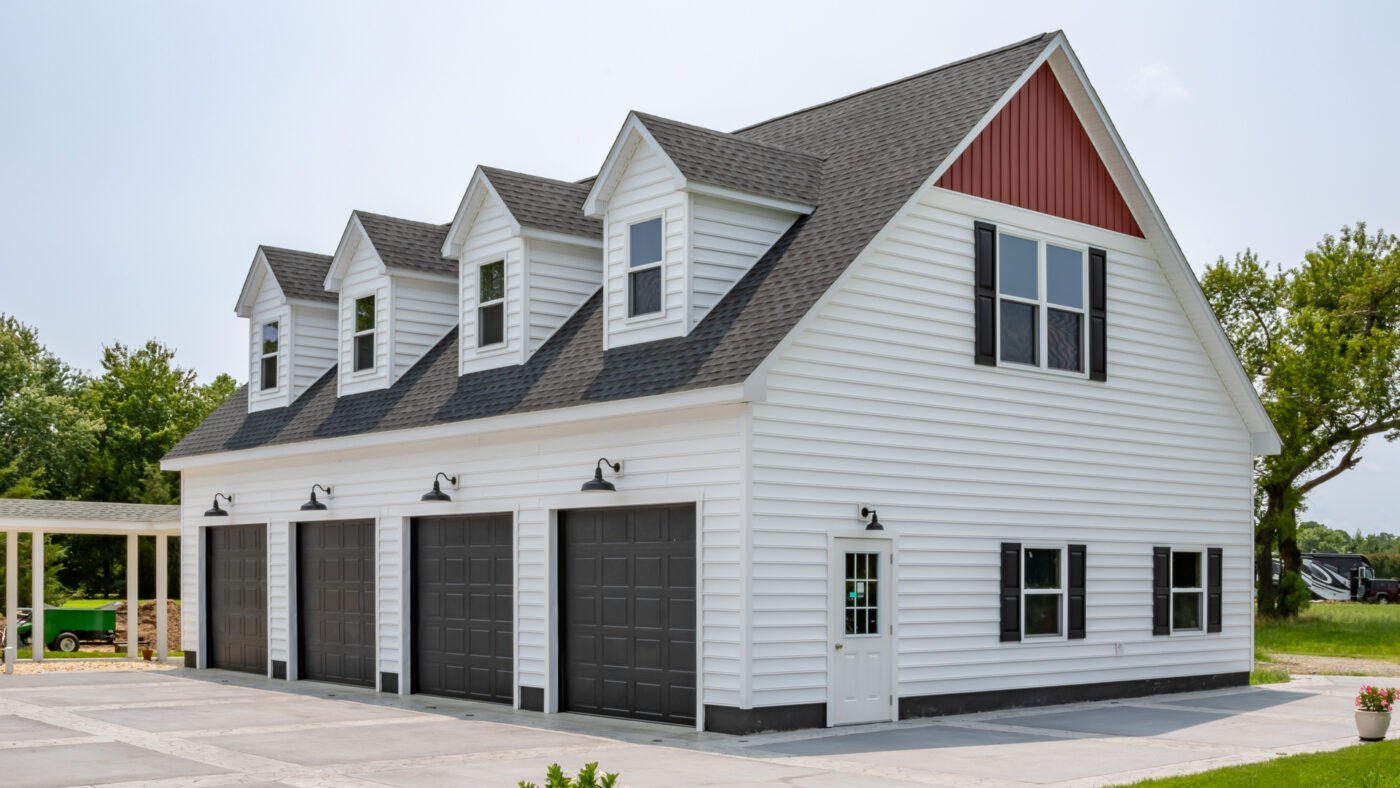
Based on the customizations chosen, a concrete driveway can cost anywhere from $4/sq. ft. all the way to $12 or $18/sq. ft. At $11.00/sq. ft, a 24×24 gravel driveway would cost about $6,336. Please check with a local concrete contractor for prices in your area!
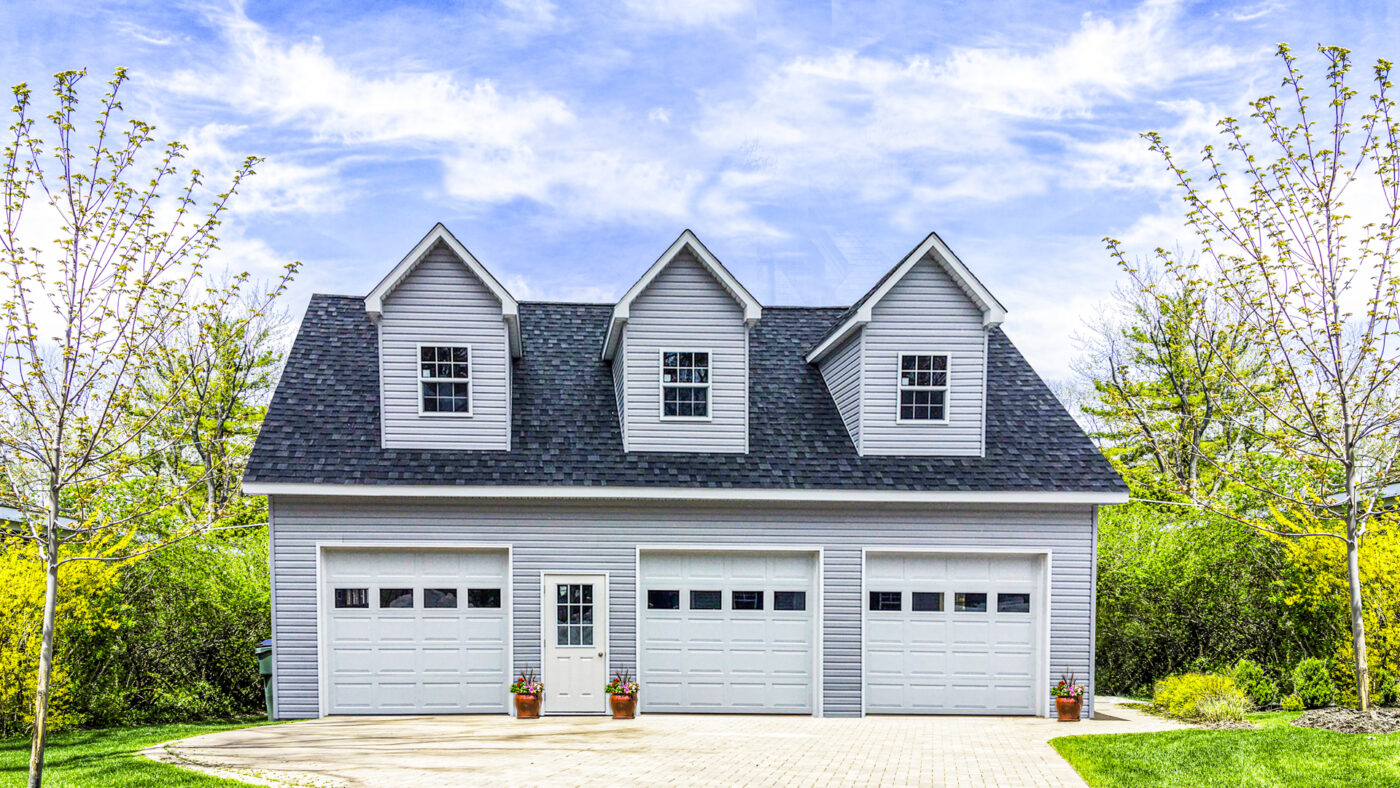
Luxury driveways made of pavers or brick/cobblestone can give a property an elegant look. On the very low end, the cost may be around $10/ sq. ft. However, most of the pricing for these types of driveways will start much higher per square foot, even up to $40/sq ft or more. Solve your storm and water requirements and add a permeable or heated driveway next to your detached garage.
At $10.00/sq. ft, a 24×24 gravel driveway would cost about $5,760. Keep in mind, this is the very low end of the price range. Please check with a local hardscape contractor for prices in your area!
| 24×24 | Low Cost | High Cost |
| Gravel Pad | $10,000 | $14,500 |
| Concrete Garage Foundation | $6,912 | $20,160 |
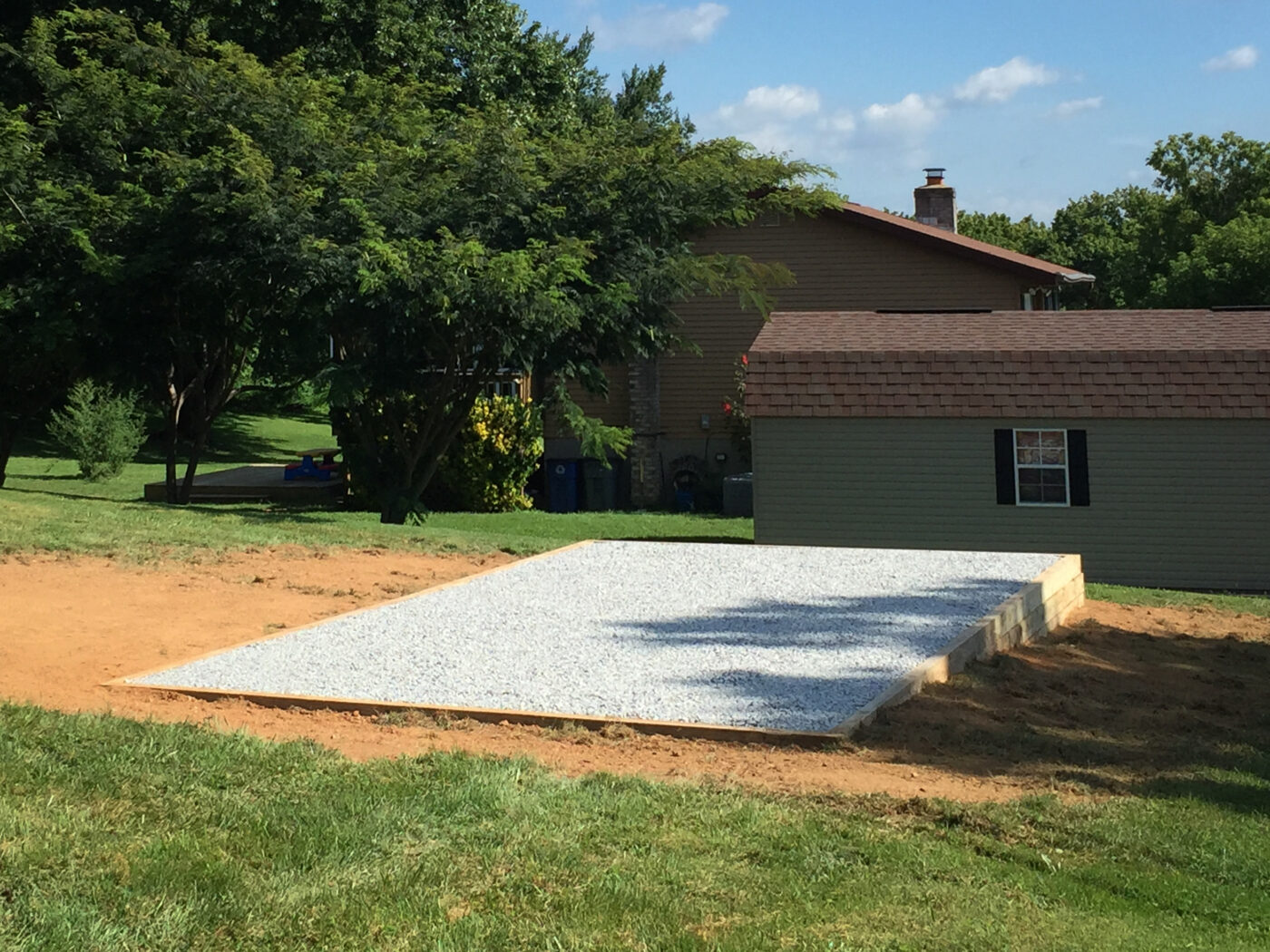
The most cost-effective and most basic shed foundation is a gravel pad surrounded by a perimeter of treated wood. This is best for a smaller detached garage, especially pre-assembled or modular styles.
If you’re on a budget, this is one part of the project that you could consider doing yourself to reduce the overall cost of your detached garage. Want to find a site prep company to install it for you? Click here for a Lancaster-based garage pad company.
A gravel pad for a 24’x24′ two-car detached garage will typically cost between $10,000-$14,500.
On larger projects and for more durable support, you’ll want a concrete foundation. Overall, concrete garage foundations can range from $5-$35.
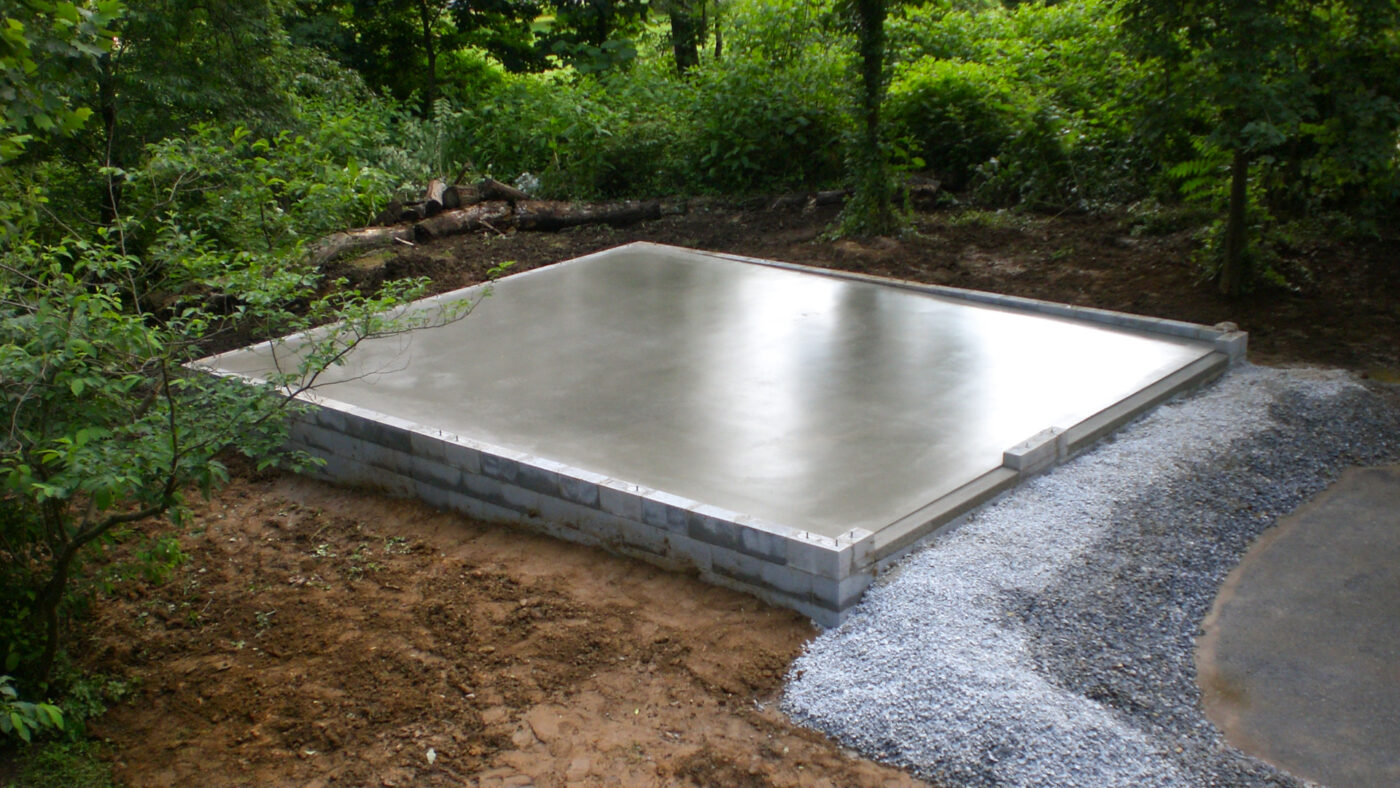
While there is certainly a higher cost of installing a concrete pad, there are several options depending on your personal preference, budget, and local town requirements.
The big question, of course, is what does a garage foundation cost? For a 24’x24’ detached two-car garage, a quality concrete floating foundation will be around $4,608 to $8,640, while a garage pad with a block foundation will run from $9,792 to $14,400.
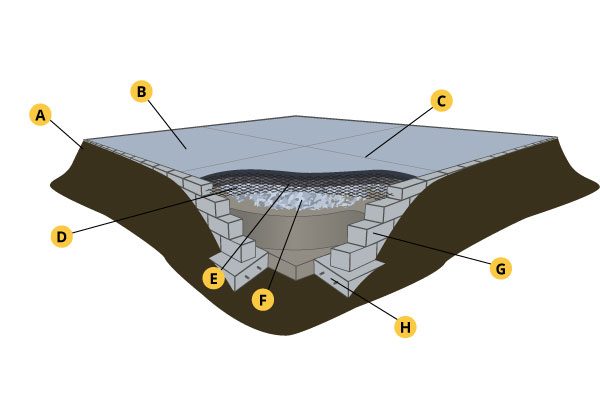
But keep in mind, building a concrete foundation can save money during the actual detached garage construction process by eliminating the need to build a floor into the garage. The floor of the garage will be the concrete pad.
Depending on the garage you’re buying, you might be tempted to save on your detached garage cost by simply placing the structure on concrete blocks. This is strongly discouraged as blocks are not only difficult to level properly but can also crack or settle with years of use and exposure to the elements. Over time, this settling can cause a variety of problems, including binding windows and doors. It’s best to make sure your detached garage foundation is built right the first time!
Finally, make sure you remember to figure any required permits or licenses into the cost of a detached garage. While this is not a substantial cost compared to the overall detached garage cost, it’s an important part of the project. For information on garage permits in MD, read our article.
Finally, we’re ready to actually start planning for the detached garage itself!
And there are a number of things to plan for. Let’s break down the major components of a garage project one by one:
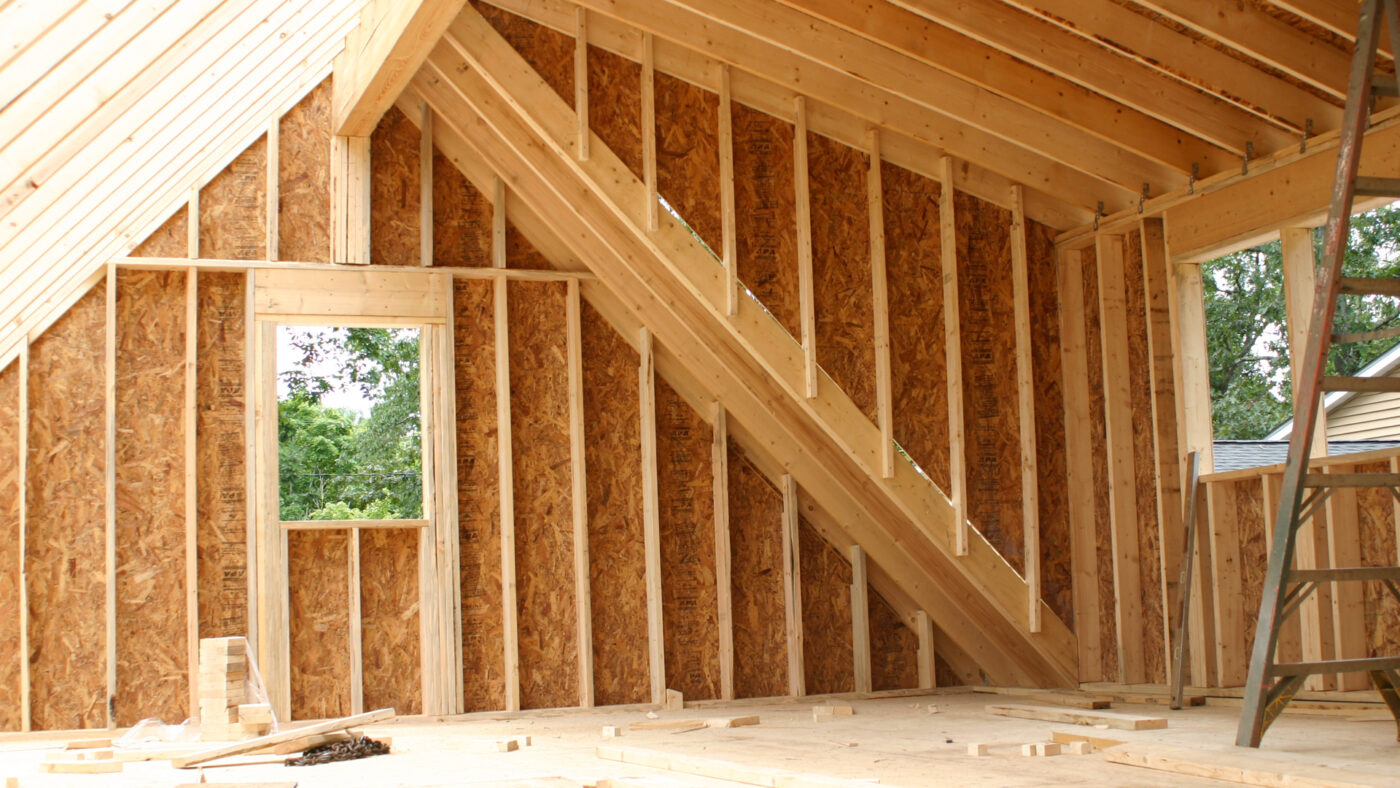
This is the skeleton of your entire garage, so make sure it’s good quality! 2x4s are the standard when it comes to framing up a detached garage but for larger garages, it would be a good idea to upgrade to 2×6 framing. If you plan to insulate the garage, going with 2×6 framing will cost a bit more, but give you much better insulating value.
It’s common to use trusses for framing in the roof area of your detached garage. But again, there are countless options. Want attic space in your trusses? That costs more! Need a stairway going to the attic area? Another cost. How about going with a full second floor as shown in the photo? Then you’ll need a floor joist for the second floor which might include an I-Joist and a special order truss (I know, there’s a loss of choices :).
And don’t forget, it is generally a good idea to have at least a 12” overhang on all sides as this gives a better look and also keeps rain further from the sides of the garage.
Basic 4/12 Pitch Truss. 4/12 Pitch Scissors Truss 10/12 Pitch Attic Garage Truss. 12/12 Pitch Truss for Subfloor
There are an incredible number of options when it comes to choosing a siding for your detached garage. You will want to consider how best to match any existing buildings on your property, as well as factors of durability, maintenance, and budget.
| Siding Option | Low Cost (per sq ft) | High Cost (per sq ft) |
| Wood | $3 | $16 |
| Vinyl | $2.50 | $15 |
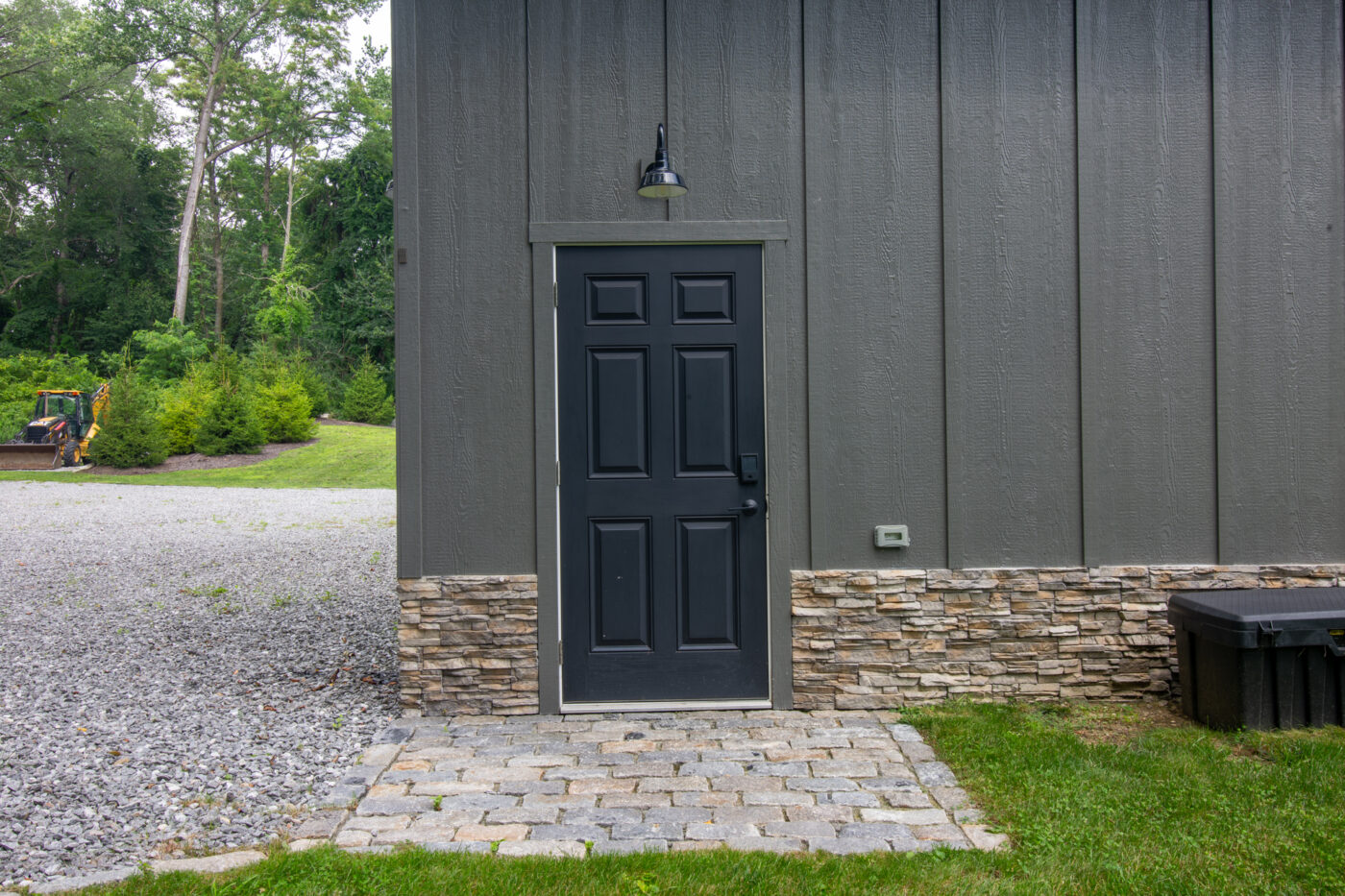
The cheapest way to cover the walls of your detached garage is with simple wood siding sheets that can be nailed or screwed directly to the studs, such as T1-11 siding panels.
Installation costs can range between $3-10/sq. ft., depending on the difficulty of the project. Of course, there can be outlier prices as low as $2/sq. ft. or as high as over $16+/sq. ft. This is typically the least durable siding type and should be painted with quality exterior paint to protect it from the weather. Other examples of wooden siding include clapboard, tongue, and groove, or board and batten, each with varying degrees of cost and difficulty. At Sheds Unlimited, we use a wood panel siding with a 50-year warranty.
Probably the most common home covering in the country, vinyl is popular for its durability, color choices (roughly 350!), and low maintenance. While more expensive than the cheapest wood paneling, it won’t need paint and should more than pay itself off with longevity and reduced maintenance.
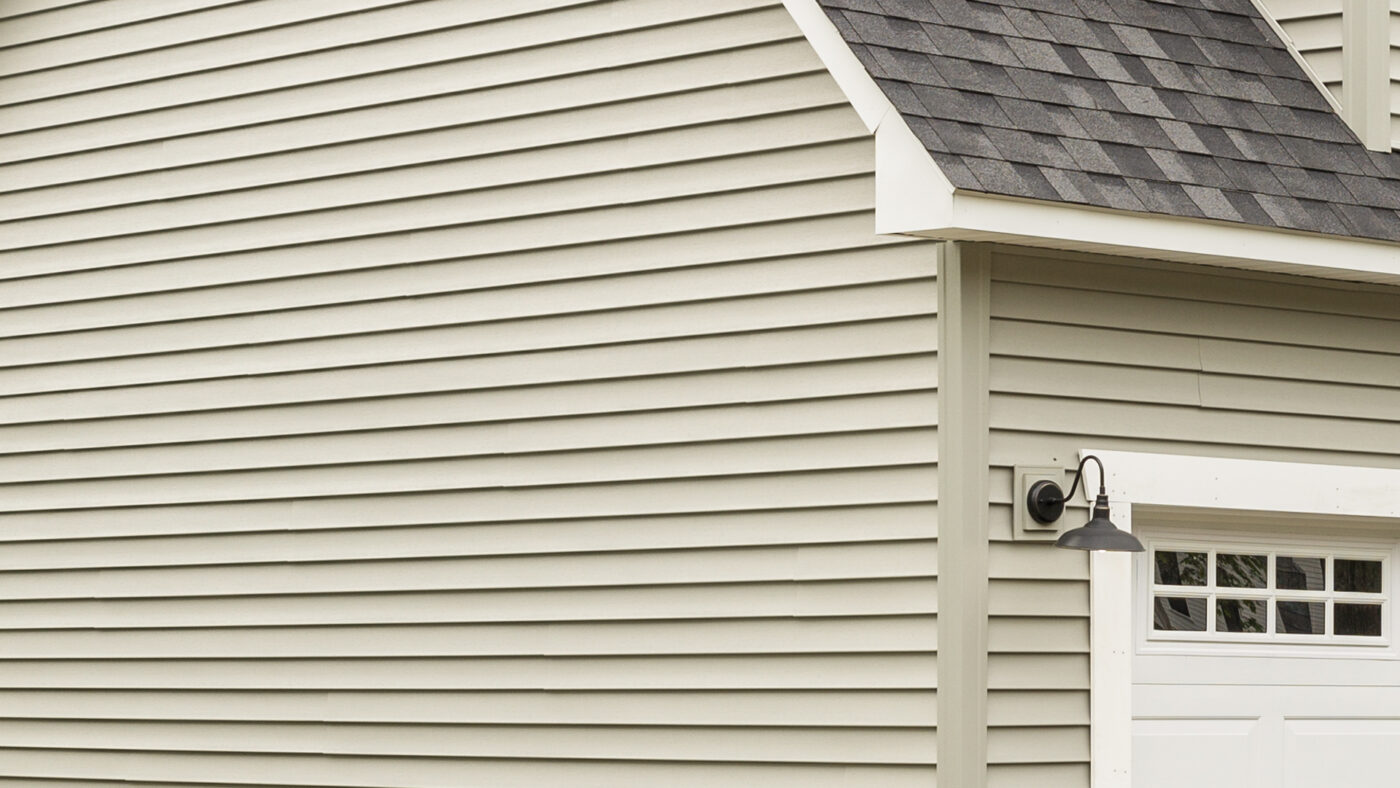
$2.50-15/sq. ft. is the typical price range for having vinyl siding installed on a detached garage, depending on the quality of the product and the difficulty of the installation. You will also need to plan for OSB or plywood on the walls for the siding to be fastened to and possibly some type of house wrapping material./
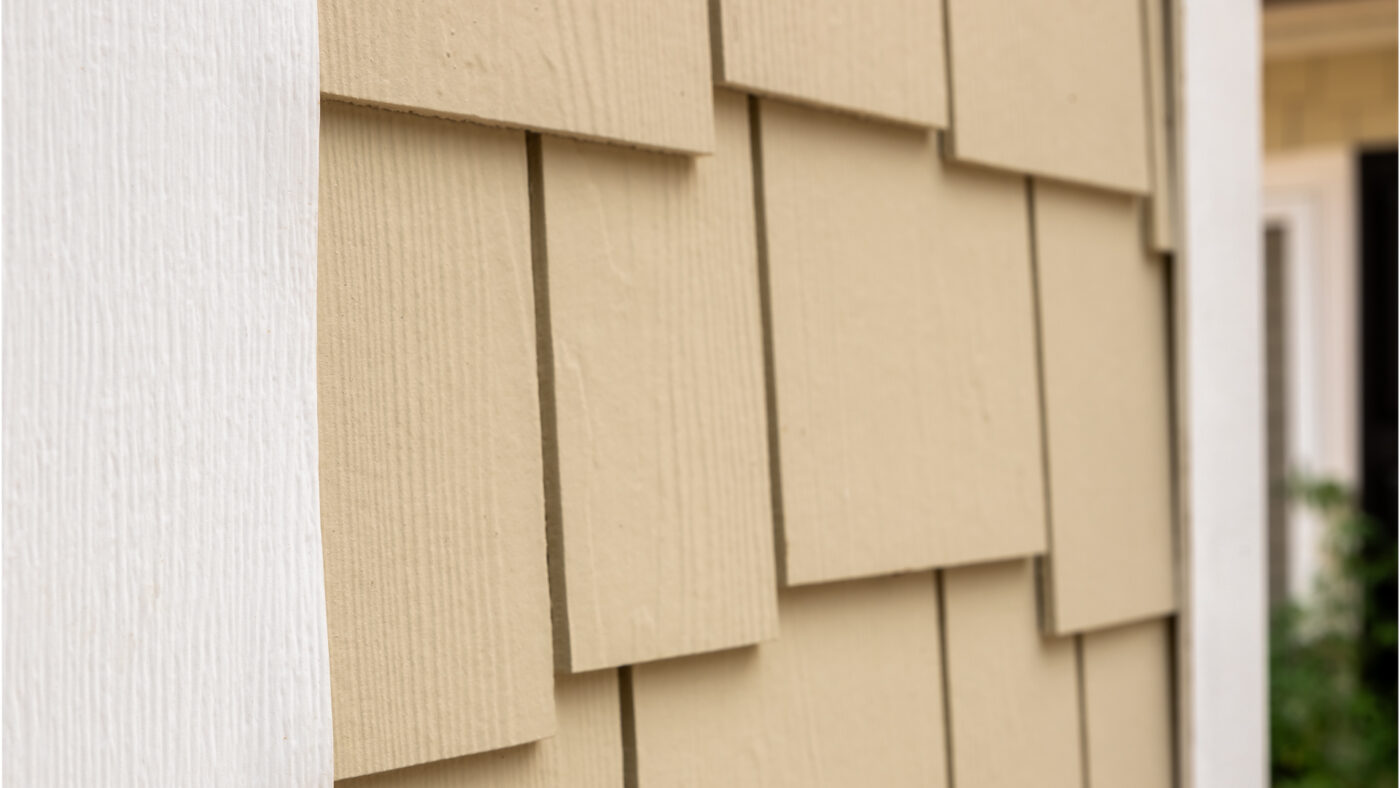
There are various other choices for finishing your garage exterior, including metal paneling, wood shakes, or, on high-end projects, brick or stucco. Each of these options will impact the cost of your detached garage differently.
If your roof fails, the rest of your detached garage won’t last much longer. This is one of the most important parts of your project since it protects the structural integrity of your building along with your precious belongings inside. Take advantage of our pricing table and continue reading to understand roofing options more thoroughly.
| Roofing Option | Low Cost (per sq ft) | High Cost (per sq ft) |
| Asphalt Shingles | $1 | $8.50 |
| Corrugated Metal | $3.50 | $12 |
| Standing Seam Metal | $8 | $35 |
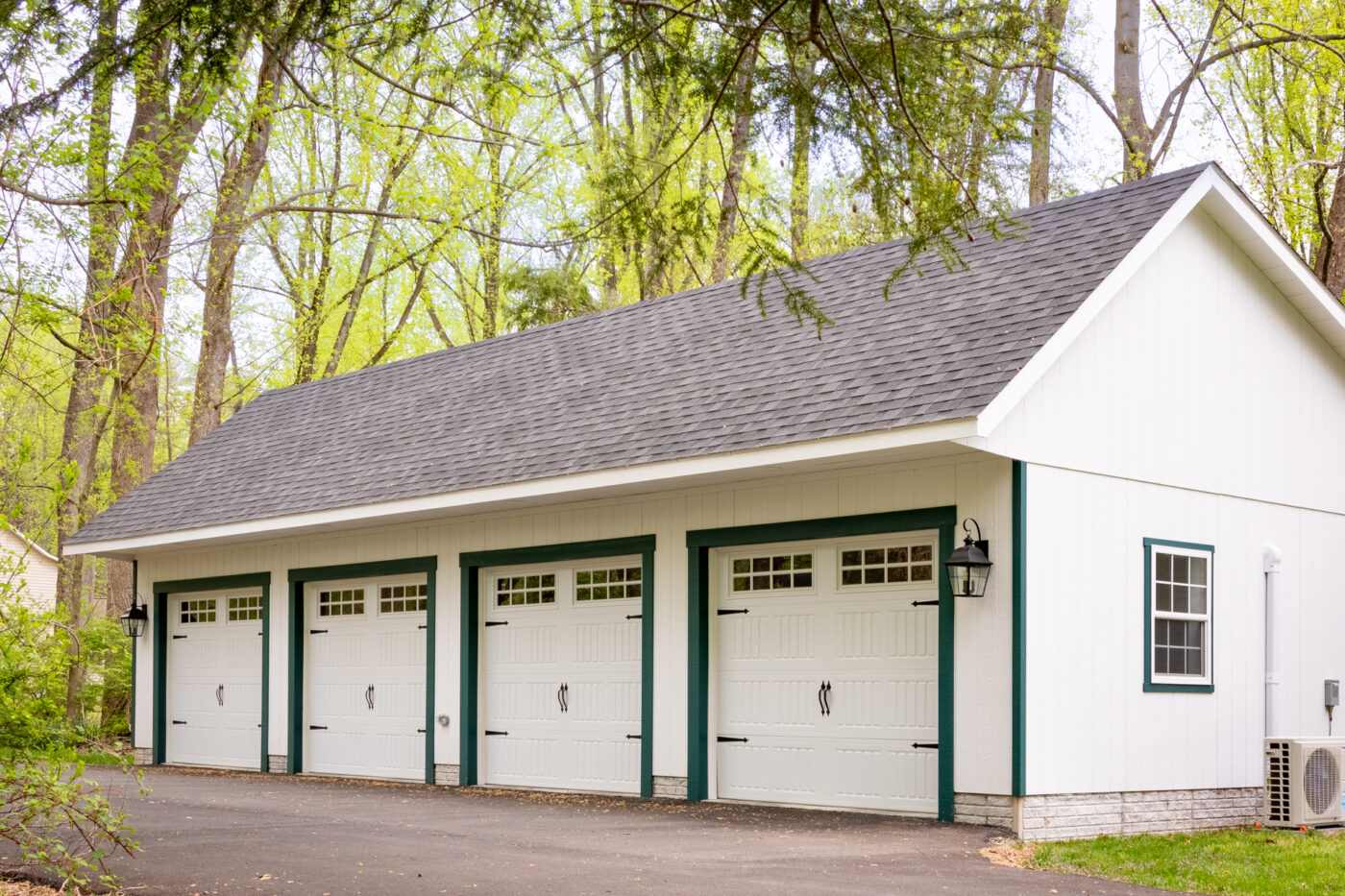
By far the most popular choice for sloped roofing! The most common shingle these days is an architectural or “dimensional” shingle. Not only are they durable and straightforward to install, but the “dimensional” look also adds to the elegance of even the simplest buildings. Prices often run $1.00-$8.50/sq. ft.
To take the look of your detached garage up a notch, you might think about a corrugated metal roof screwed onto purlins which span your trusses. Some people prefer the look of a beautiful metal roof and the ease of installation is also a plus. Prices can be anywhere from $3.50-$12/sq. ft., depending on the gauge of metal and other factors.
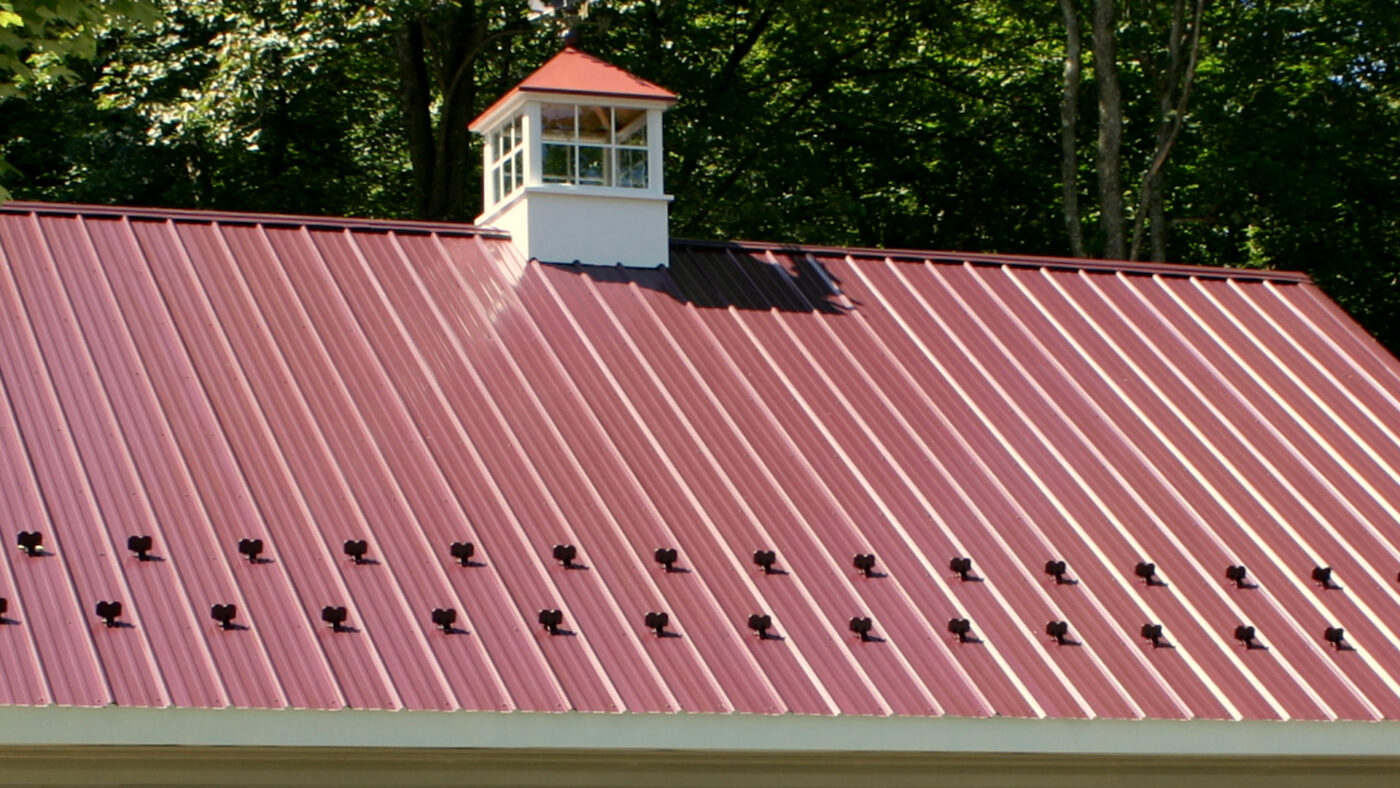
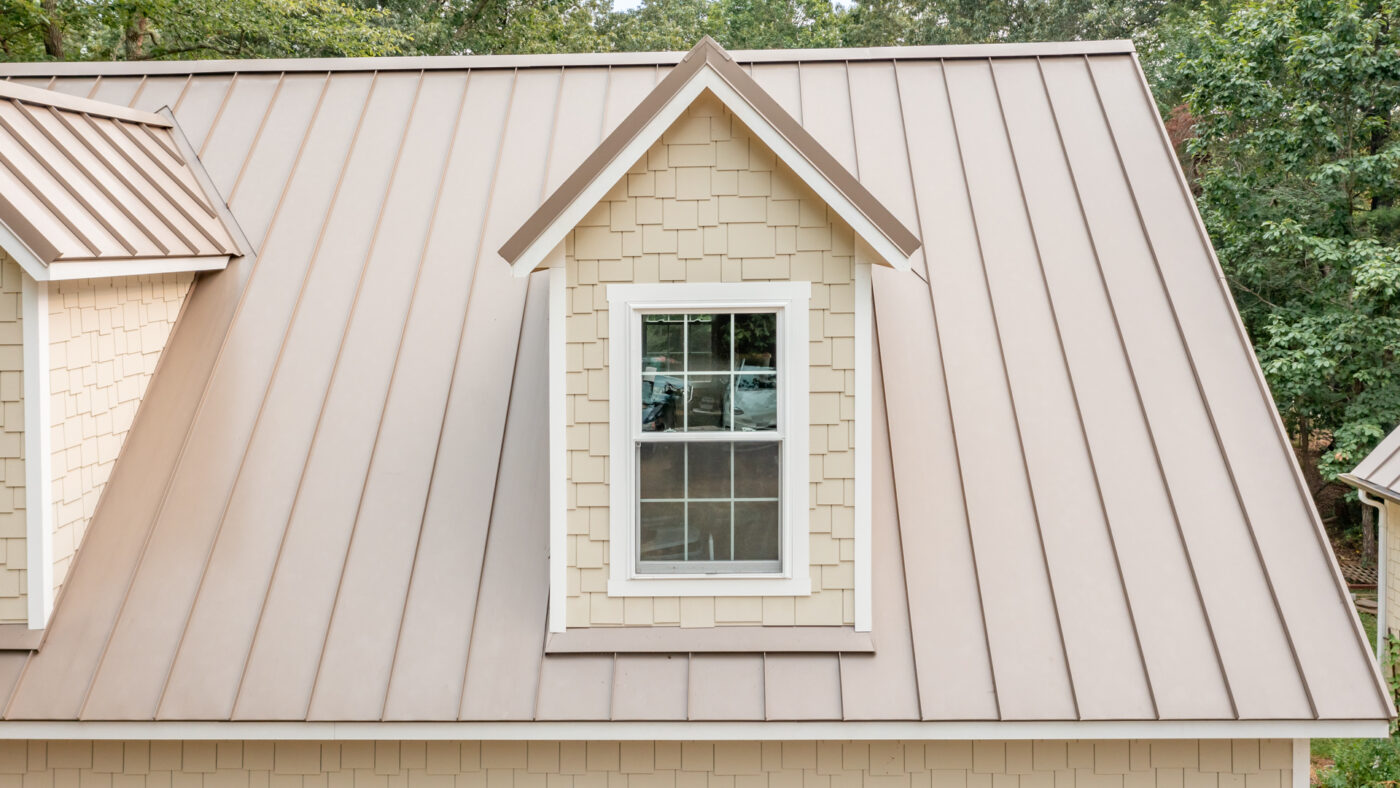
Standing seam metal is often considered to have the best look and the best durability of any metal roof. With this type of metal, no fasteners are exposed to the elements; they’re all hidden. This makes the standing seam a particularly appealing choice to property owners concerned with maximum longevity. The only downside: prices can run anywhere from $8-$35/sq. ft.
There are a variety of other roofing options including wood shakes (popular for their looks), slate (incredibly long-lasting, but expensive), and synthetic slate.
With shingles and some types of standing seam, you will also need to figure for the cost of plywood or OSB sheathing underneath the actual roofing, usually $1.00 to $1.50/sq. ft. Remember tar paper underlayment and any necessary trim and flashing components.
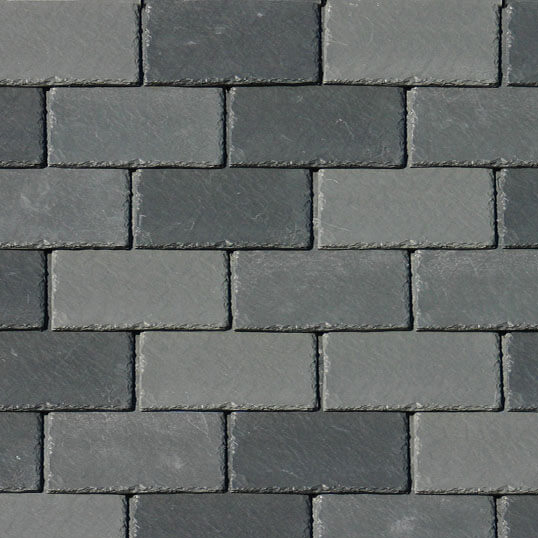
What good is a garage you can’t get in and out of!? You’ll want to put some thought into the best garage doors for your project. 9’x7’ is a standard size for garage doors and will allow good access for most types of vehicles. Options range from a simple, non-insulated, white metal door for several hundred dollars (uninstalled) to handcrafted, wooden doors for several thousand!
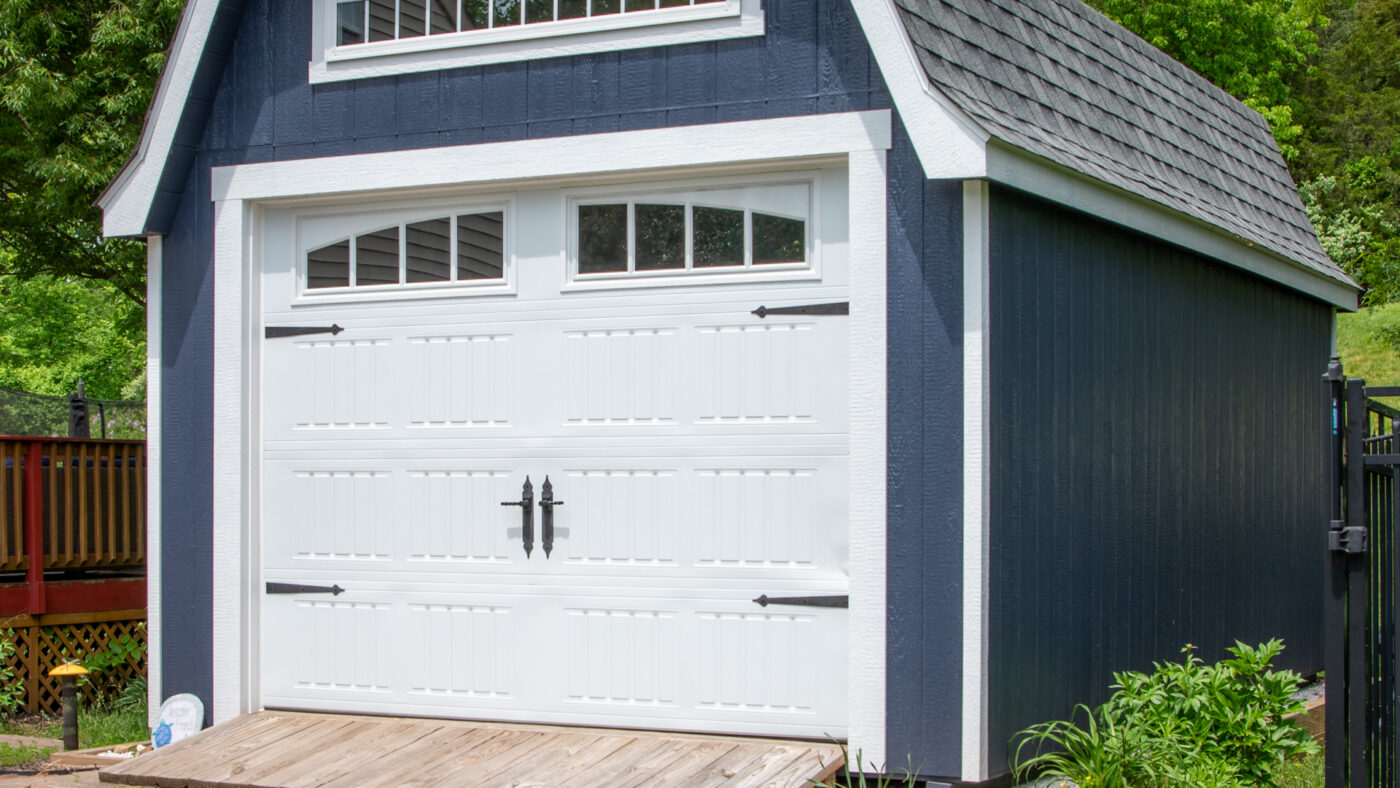
If you’re planning to add heat, you’ll definitely want insulated garage doors, which will add to the cost of your detached garage but will help you save on your heating bill. And of course, you’ll need to decide if you want the trouble of manually opening the door every time you drive in and out of your detached garage. If not, choose a reliable garage door opener that can be operated from inside your vehicle.
It’s usually a good idea to figure a pedestrian door into the cost of your detached garage so you don’t need to open and close ahuge garage door anytime you want to slip in or out. 3’ is the typical width for a single door, while a set of double doors can range anywhere from 4’-8’ wide. Again, prices vary widely based on material and other factors like hinges and insulation.
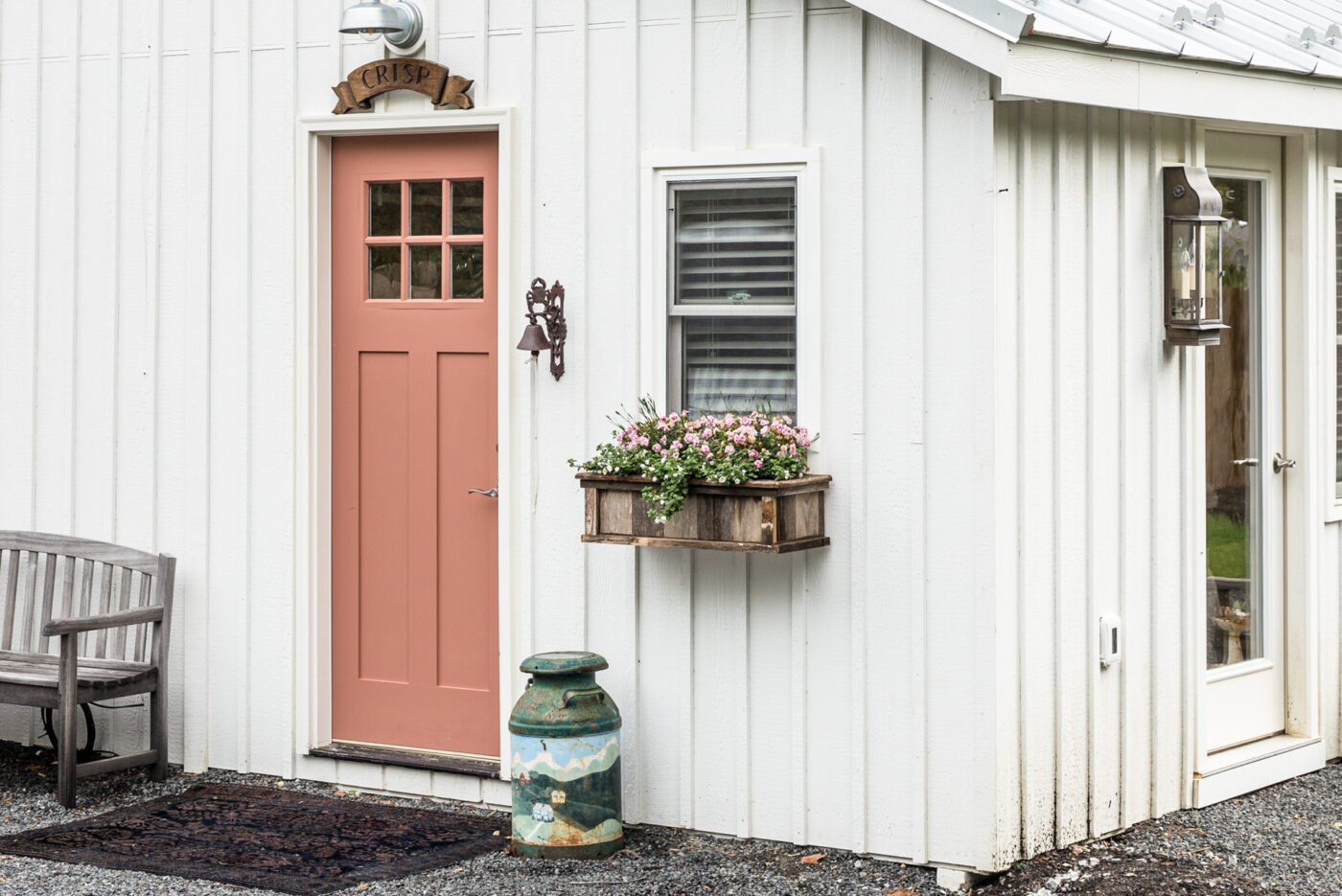
A detached garage should generally have at least one or two windows for natural light, even if you plan to wire the garage for electricity. If you plan to spend any amount of time in the garage on a regular basis, you will want to add more. There are a huge variety of window dimensions to choose from, with 18”x36”, 24”x36”, and 30”x36” being some of the most common sizes. There is a range of styles (such as transom windows), as well as insulated and non-insulated options.
The incredible customization that’s possible if you decide to finish out some or all of the interior of your garage deserves an entire article of its own. To touch on a few considerations to chew over as you figure out your detached garage cost:
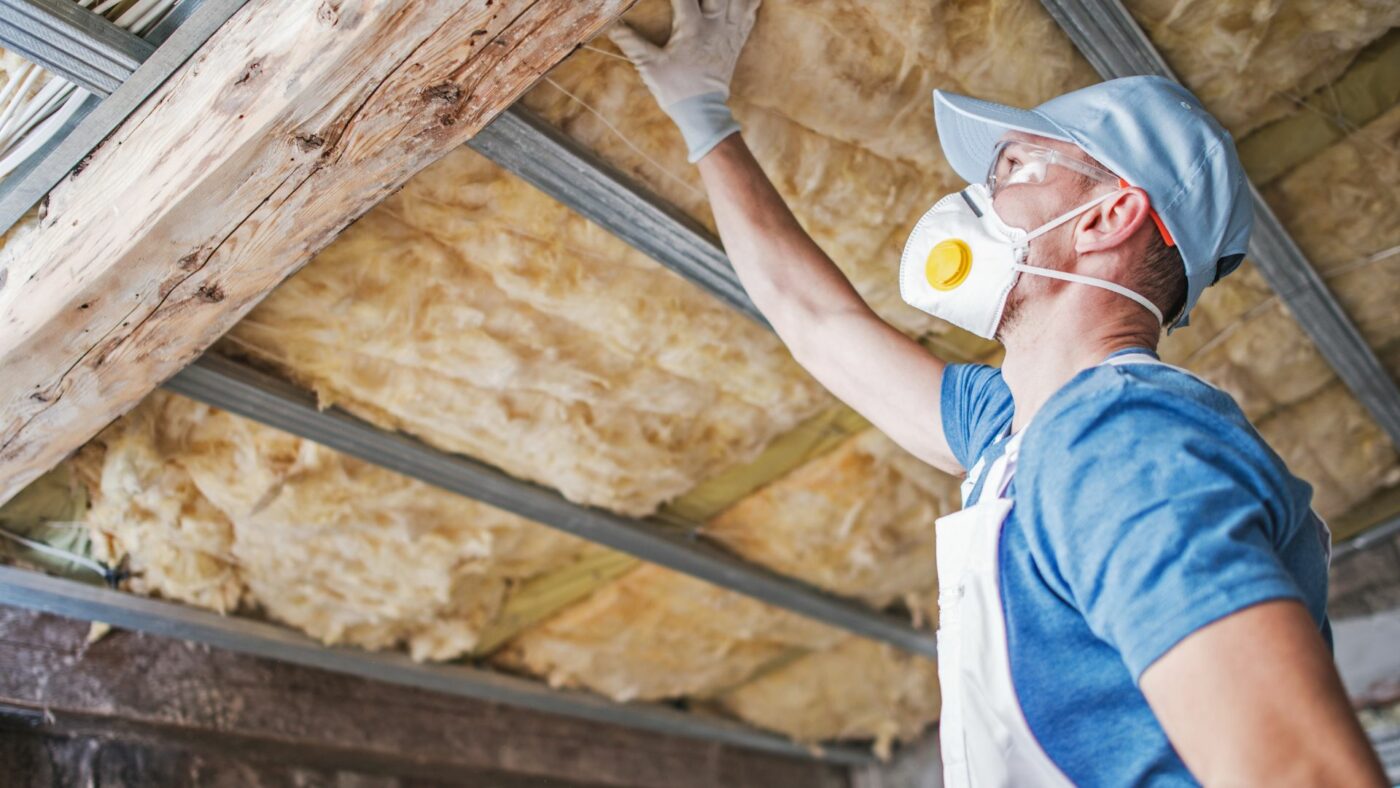
If you ever plan to heat your detached garage, even temporarily, it can be a great idea to insulate it. Options include batt and blanket (or roll) insulation (available in fiberglass, rock wool, and cotton), loose-fill (or blown) insulation (especially good in attic spaces and available in fiberglass or cellulose), rigid foam (or panel) insulation, or spray foam.
Simple vehicle storage doesn’t require any of these additions, but if you want to do anything else in your garage, you’ll want at least electricity for lighting and your garage door opener.
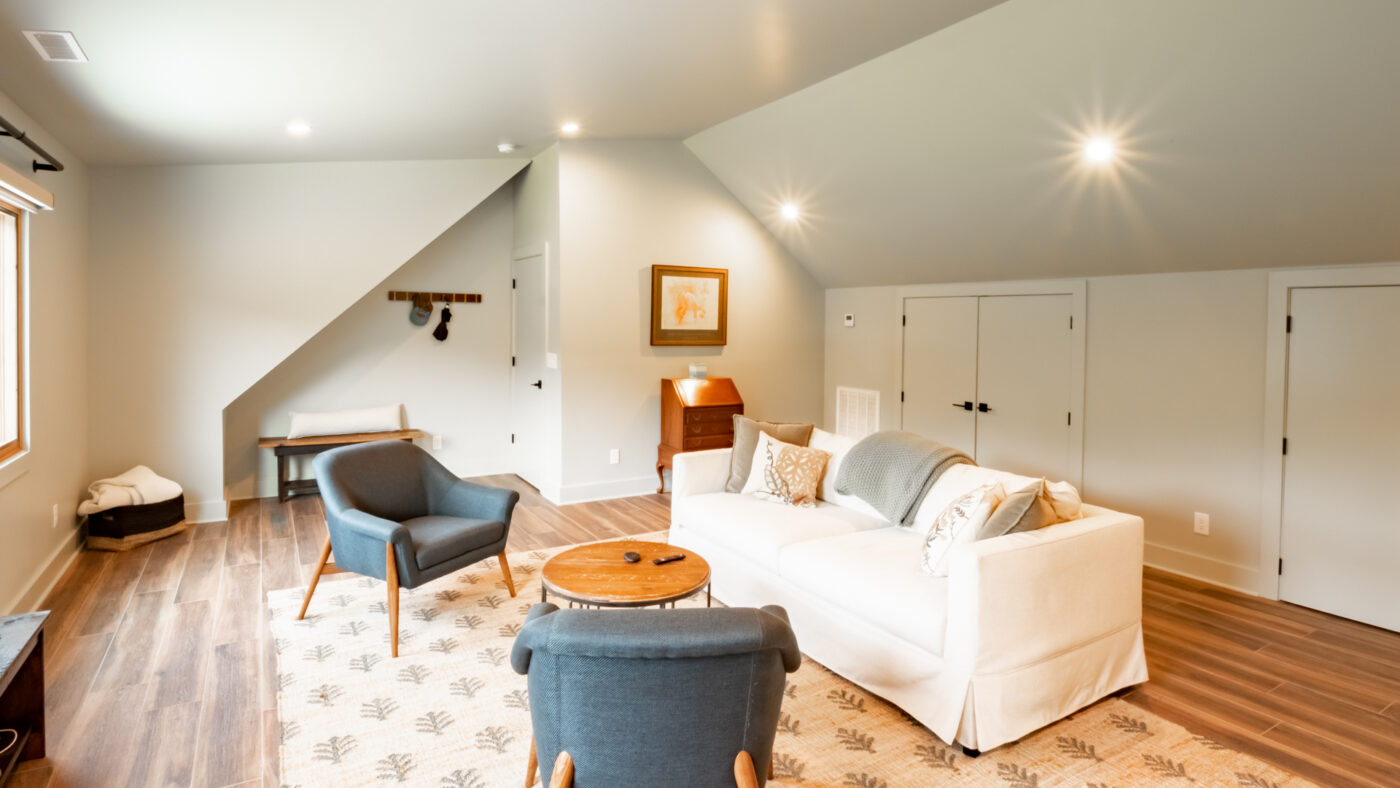
Food storage or a workbench with electric tools are other options if you have an electrical connection. Plumbing and HVAC configurations can open an entirely new world of possibilities for your detached garage!
If you plan to spend a lot of time in it, drywall and paint can be a nice touch for your garage interior, especially if you are finishing loft space, a recreation room, or a man cave. For the best look, pick out a nice trim and paint it an accent color!
Of course, the prices given here are all very general estimates for on-site construction. To be completely accurate, you will want to talk to local contractors to find out what the going rates are in your area.
Back in the old days, there was only one way to build a garage…completely from scratch! Nowadays, there are a few more, very cost-effective options, depending on the size and style of your detached garage. Let’s break down the choices:
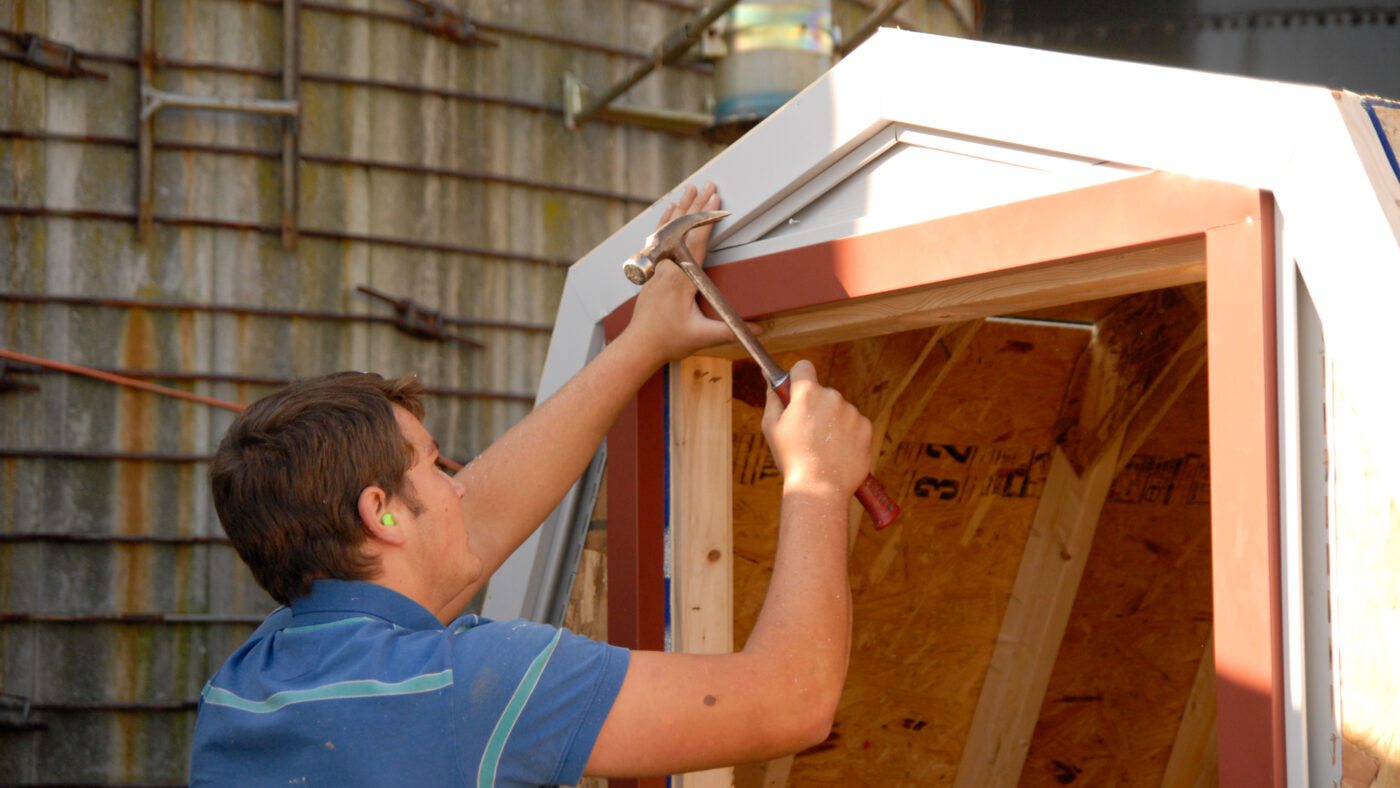
Of course, this is still a very relevant option. Building your detached garage piece by piece ensures that you have complete control over every detail of the finished product. Whether you do the project yourself (more on that below) or hire a general contractor, you can build the project exactly to your specs.
One of the downsides of building from scratch is the added cost (and/or trouble) of designing and executing a completely unique detached garage project.
While independent contractors need to build everything on-site, some companies are able to prefabricate sections of your detached garage in a dedicated assembly facility where team members can customize their workspaces for maximum efficiency.
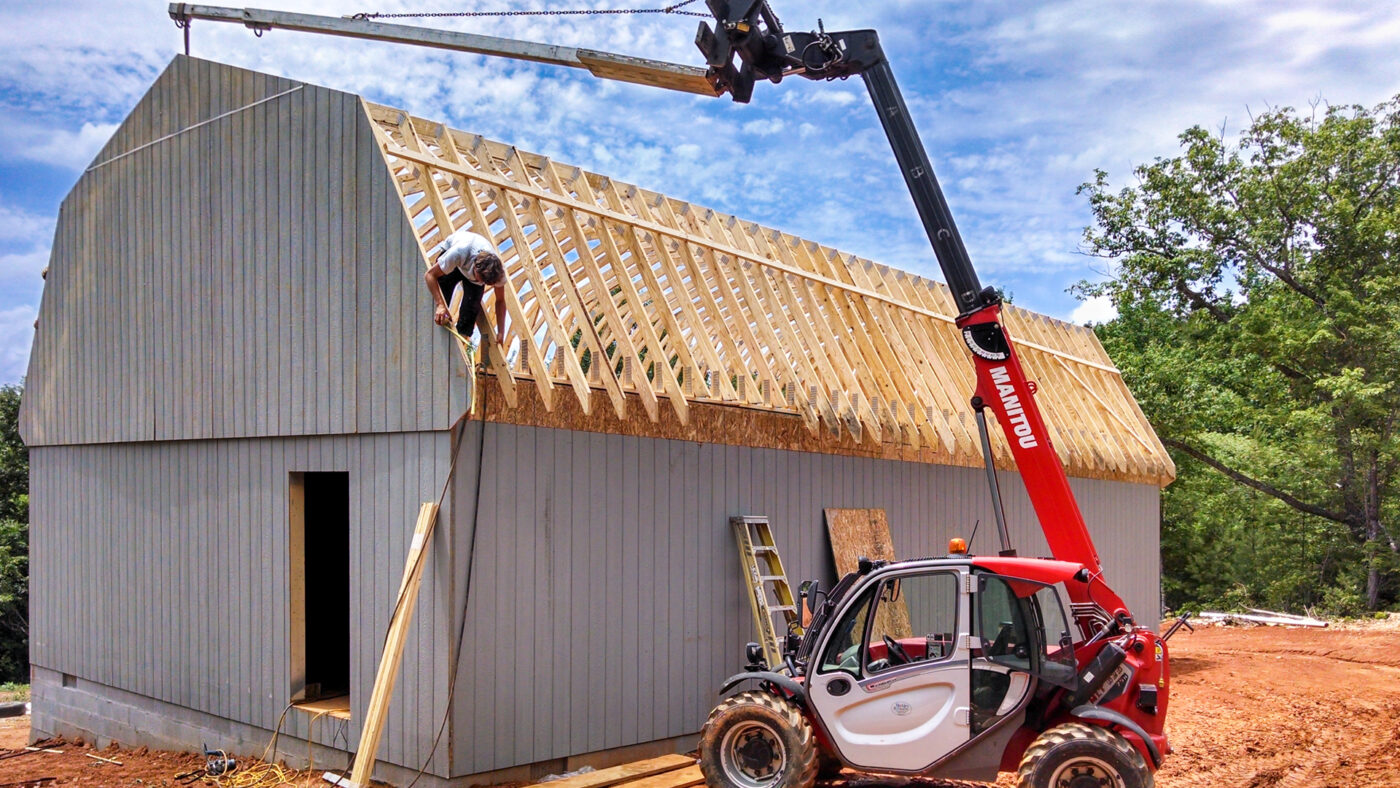
Then, all the pieces can be transported to the construction site and assembled fairly quickly. Customers generally choose a base design that can then be customized and reconfigured in virtually endless ways. With this model of the building, the inefficiencies of on-site construction are minimized (making for very reasonable pricing), while still allowing complete control over your project’s final design. This is generally used for two-car garages and larger.
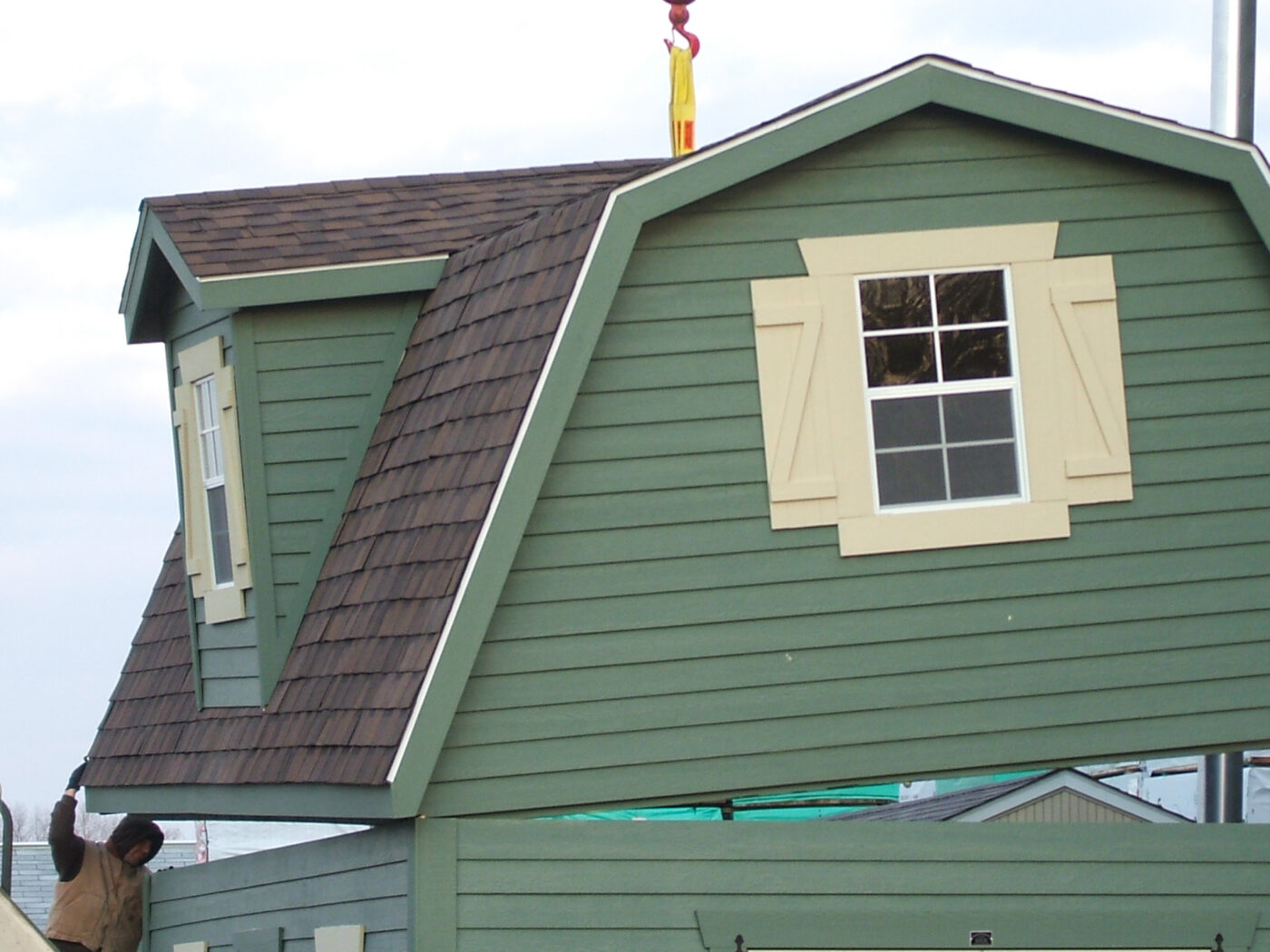
With some designs, a detached garage can be assembled in two major pieces at the construction facility. Once transported to the final destination, the two pieces are joined, and any finishing touches are put in place.
This allows for increased efficiency, to the point where on-site construction time is reduced to less than a day for a two or three-person crew. With this configuration, the cost of a detached garage falls even further. Modular construction is most common with doublewide two-car and two-story single-car detached garages.
For single-car designs, it’s possible to have your detached garage completely pre-built in an assembly facility and transported to your site. All customization and design are done by the property owner beforehand, so on-site time is reduced to hours or less. This is the route to go for the lowest possible price on a detached garage.
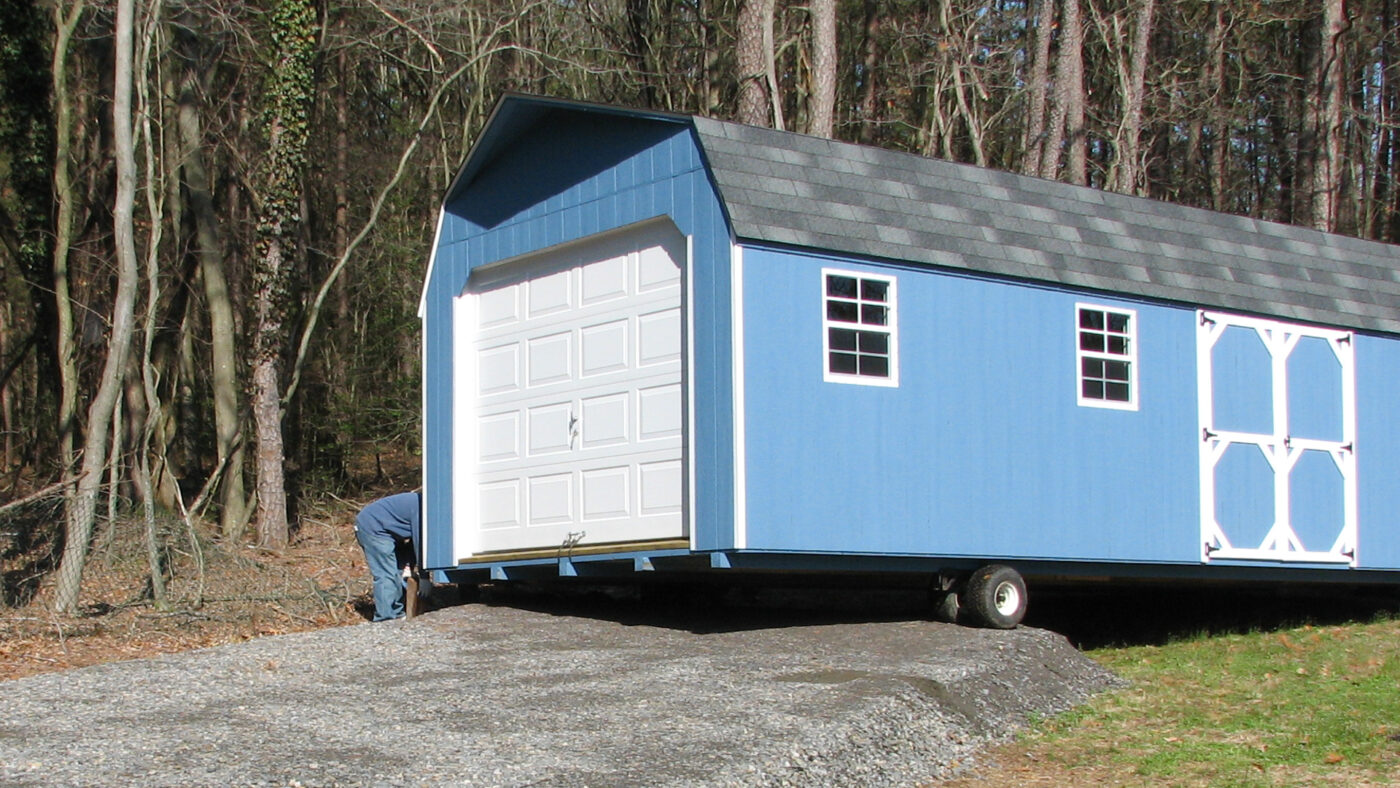
Wow! That was a lot! Now how much will my garage cost if I build it myself?
If you have some construction experience and want to save cash or have the satisfaction of working with your hands to improve your property, you may consider doing your detached garage construction yourself. We created this spreadsheet for a rough breakdown of the supplies cost for a very basic 24’x24’ detached garage if you purchase from a local building supply store.
| Framing | Quantity | Rate | Total Price |
| 2×4 – 8′ | 75 | $9.50 | $712.50 |
| 2×4 – 12′ | 30 | $19 | $570 |
| Trusses – 24′ w/1′ overhangs | 13 | $185 | 2,405 |
| 19/32″ OSB Sheathing – 4×8 | 22 | $60 | $1,320 |
| Framing Nails – box | 1 | $65 | $65 |
| Hurricane Ties | 30 | $1 | $30 |
| Framing Screws – box | 1 | $80 | $80 |
| Siding | |||
| T1-11 Panel – 4×8 | 27 | $43 | $1,161 |
| Exterior Paint – gallon | 4 | $35 | $140 |
| Roofing | |||
| Tar Paper – 2sq. | 2 | $95 | $190 |
| Shingles – bundle | 20 | $40 | $800 |
| Ridge Cap – bundle | 1 | $55 | $55 |
| Drip Edge – 10′ | 9 | $11 | $99 |
| Roofing Nails – 600 pcs. | 1 | $15 | $15 |
| Trimming | |||
| Garage Door – 9’x7′ | 2 | $1,400 | $2,800 |
| Window – 24″x36″ (insulated) | 2 | $299 | $598 |
| Door – 36″x80″ | 1 | $200 | $200 |
| TOTAL PRICE | $11,240.50 |
Some of the pros of going this route are (possibly) savings on construction costs, as you avoid any mark-up from a general contractor, as well as the fulfillment of seeing your own handiwork for years to come!
However, this list does not figure in site preparation, materials delivery, tools, or labor costs. As you can see, you will spend at least $10,000 in supplies for the most basic two-car garage before they even get to the construction site.
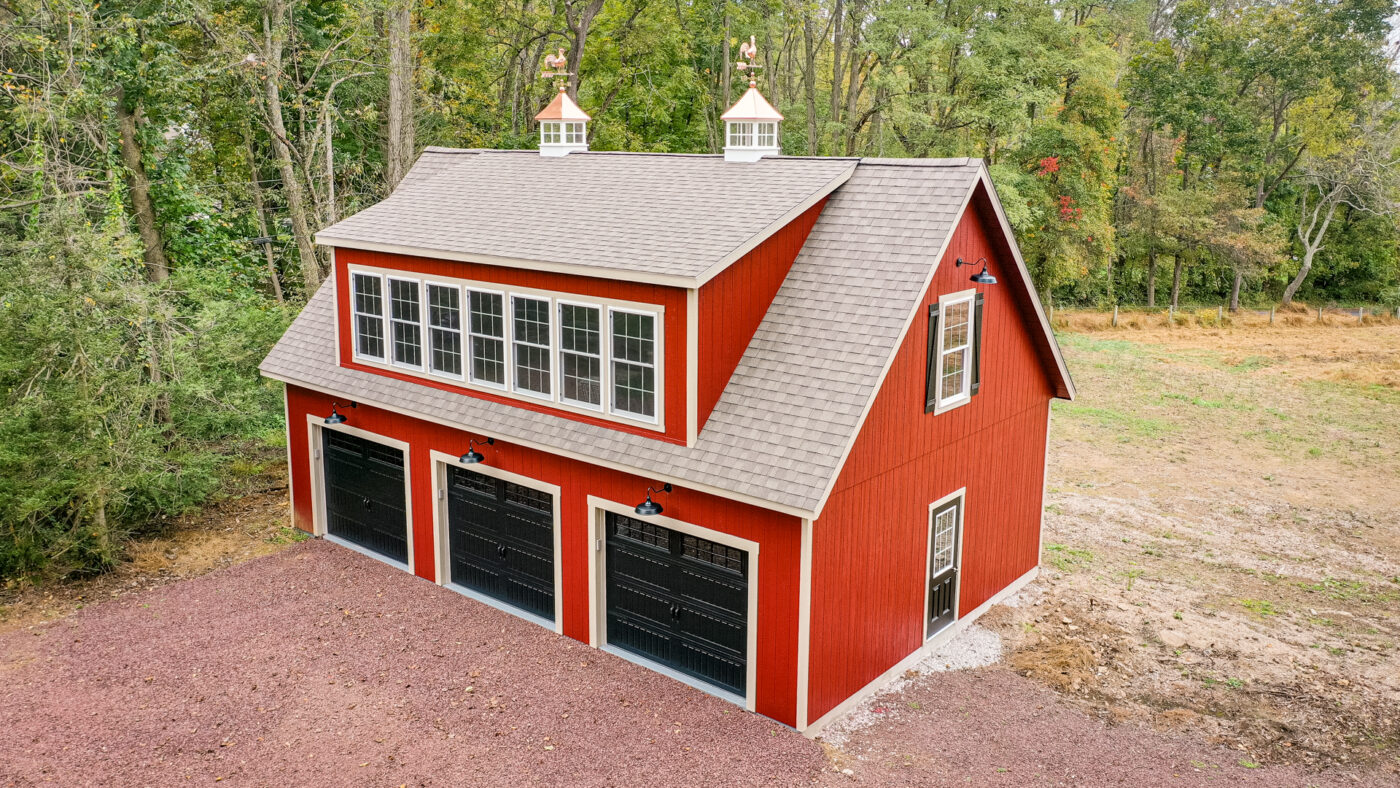
It might seem like a good idea to go ahead and craft your own detached garage. But before you go the DIY route, consider the following things: your time and expertise, quality and safety, warranty and insurance, and customization and design.
Building a garage yourself requires a considerable time commitment and a certain level of construction knowledge. You’ll need to dedicate weekends and possibly even months to the project. If you lack experience, there might be a learning curve, leading to a longer construction period. Hiring professionals, who are experienced and skilled, can significantly reduce construction time, allowing you to use your garage sooner.
By building yourself, you will lose the efficiency that comes with the experience of a specialized garage builder, as well as their reduced materials costs from purchasing in bulk. Depending on how valuable you consider your own time, there will be little to no actual savings with the self-construction approach, not to mention the added stress of managing a project of this scale.
Professionals have expertise in construction techniques, ensuring the garage is built to code, structurally sound, and safe. They are knowledgeable about local regulations and permits, preventing potential legal issues. DIY projects, especially if not done with precision, might compromise on quality and safety, leading to problems in the future.
When you hire a professional contractor, the work often comes with warranties and insurance coverage. This means that if there are issues after the construction, you have a safety net. DIY projects lack these protections, so any problems that arise post-construction are your responsibility to fix, potentially incurring additional costs.
DIY projects offer complete control over the design and customization of your garage. You can tailor it to your specific needs, preferences, and budget. However, hiring professionals can also provide customization options, and they can often offer valuable insights and design ideas based on their experience.
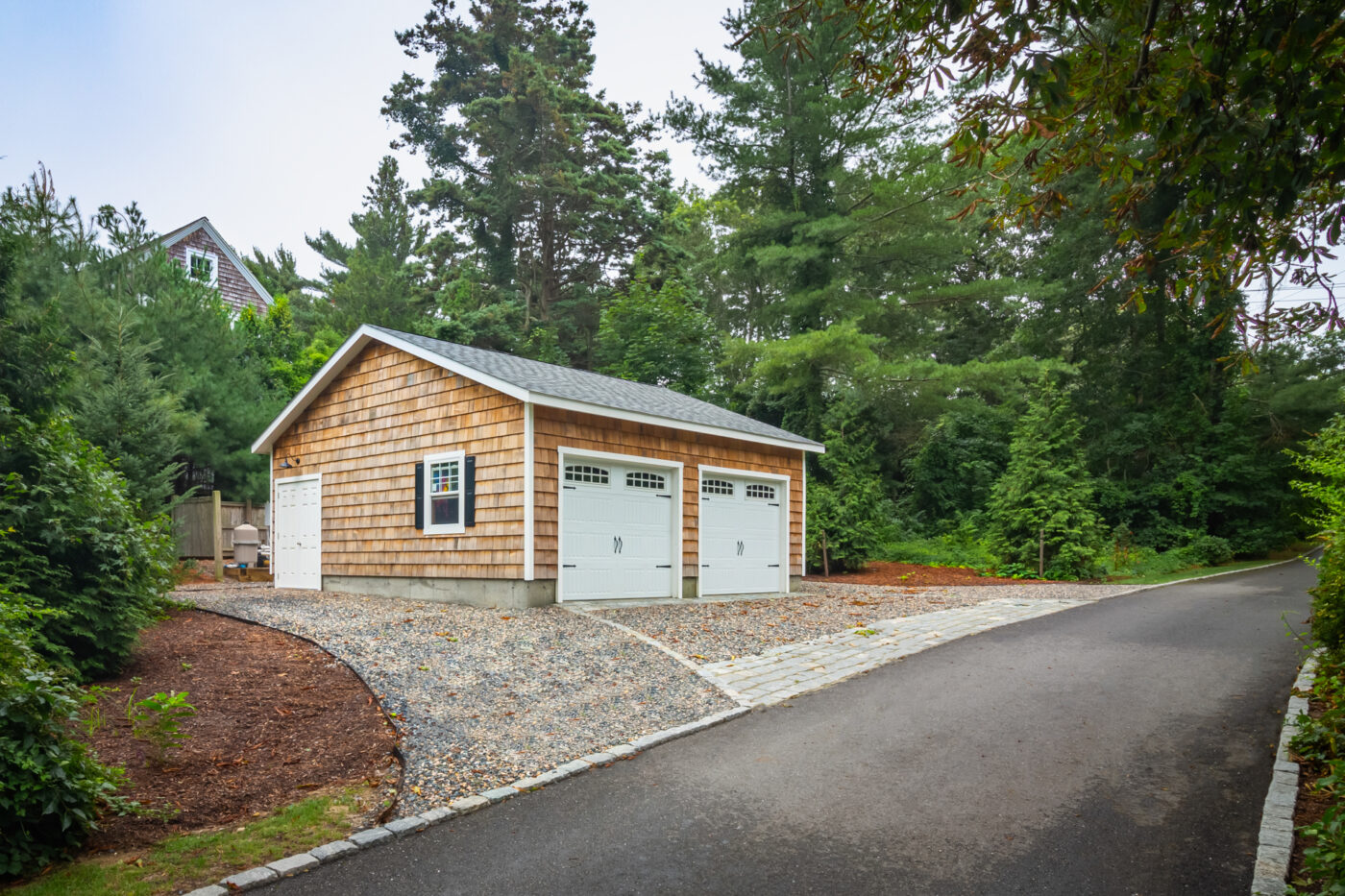
Maybe you are looking at your wallet and thinking, Wow, money is slipping away, what can I do?
Of course, we all want to save money when building a garage. You can do this by planning carefully, doing some tasks on your own, obtaining multiple quotes, and being energy efficient.
It can be tempting to just jump into a project without first thinking about what all you want and need in the design. Having a clear vision and detailed plans can help you avoid costly changes and modifications later on. Consider the size, layout, and features you truly need, eliminating unnecessary frills that can inflate the budget.
You may not be a contractor or know a thing about construction. But that doesn’t mean you have to out-source all the work on your garage. Painting, landscaping, and minor carpentry work can save you money. However, be realistic about your abilities; some tasks are better left to professionals to ensure safety and quality.
Seek quotes from different contractors and suppliers. Compare prices, services, and the quality of materials offered. Be sure to check references and reviews to ensure you are getting good value for your money and negotiate with contractors to see if there’s room for discounts or if they can offer cost-effective alternatives for certain materials.
Invest in energy-efficient features for your garage, such as proper insulation, energy-efficient windows, and LED lighting. While these upgrades may have initial costs, they can significantly reduce long-term utility bills. Check for local incentives or rebates related to energy-efficient construction, as these can help offset the upfront expenses.
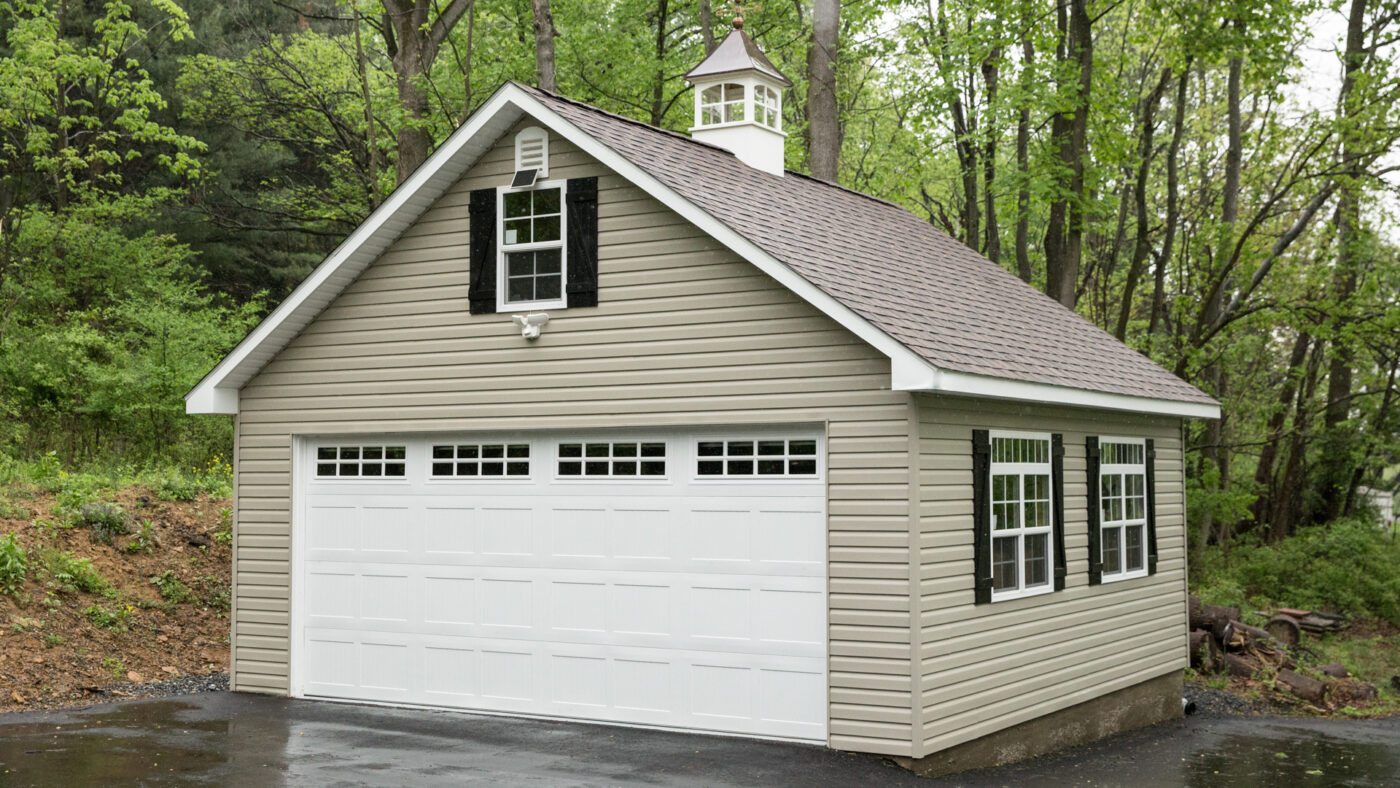
As mentioned previously, there are numerous savings available by purchasing a prefabricated detached garage from a specialized shed and garage builder (that’s kind of what Sheds Unlimited is :). Some of the benefits and savings from going this route include:
Since most large garage and shed builders order lumber and materials by the tractor-trailer load, they’re able to take advantage of pricing discounts that are not available to small contractors or do-it-yourselfers. By keeping costs lower, they are then able to pass some savings on to their customers.
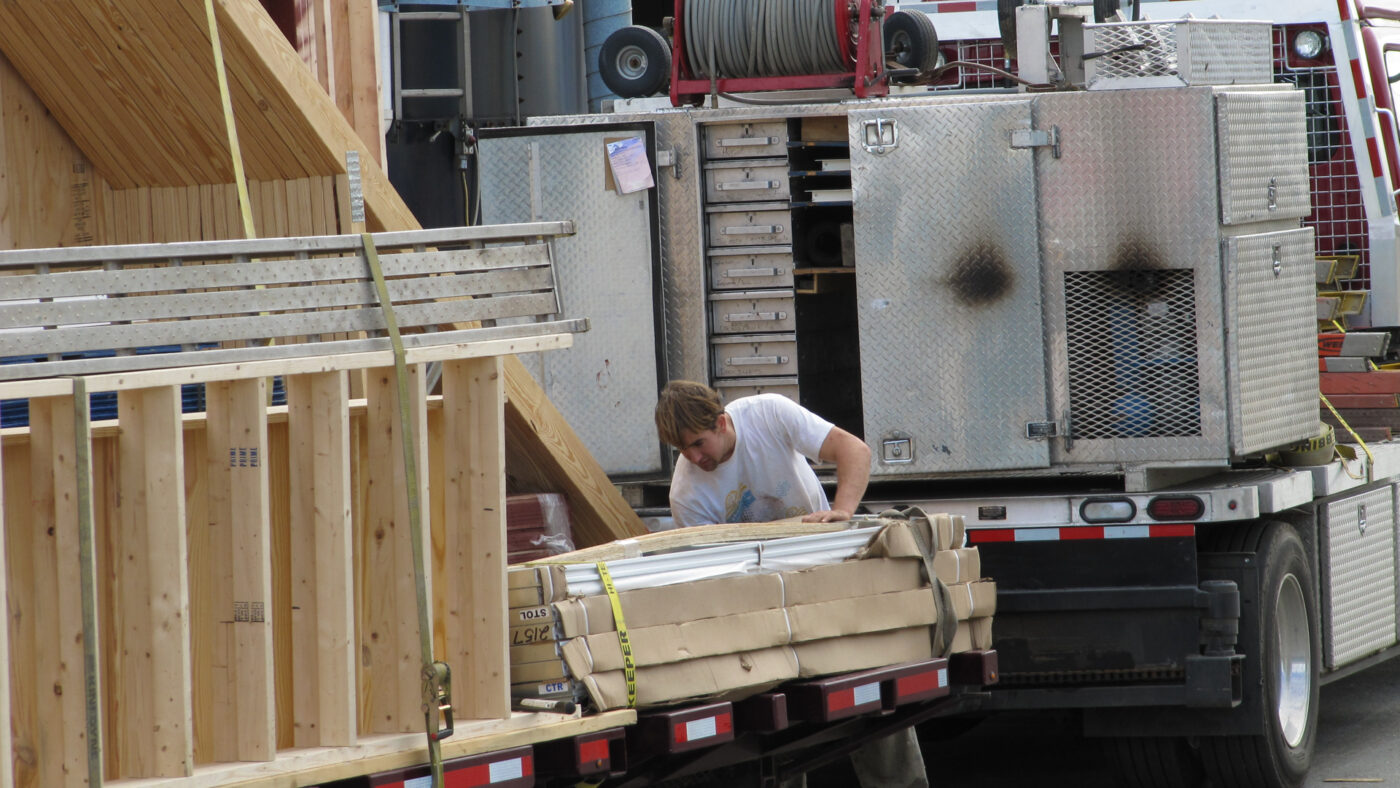
Professional garage builders prefabricate as much of a project as possible in their manufacturing facility. Here, workstations are set up to maximize craftsman productivity. Labor costs are reduced and again, more savings are available to pass on to garage buyers.
When you purchase a detached garage from an experienced fabricator, like Sheds Unlimited, you can have peace of mind knowing that your project is being handled by a company that has built literally thousands of structures similar to yours. You’ll be able to plan any customizations ahead of time, then sit back and watch while your detached garage appears virtually out of thin air! Forget weeks of construction traffic on and off your property; just a few hours to a couple of days for a straightforward delivery and assembly process and your new detached garage will be ready for use!
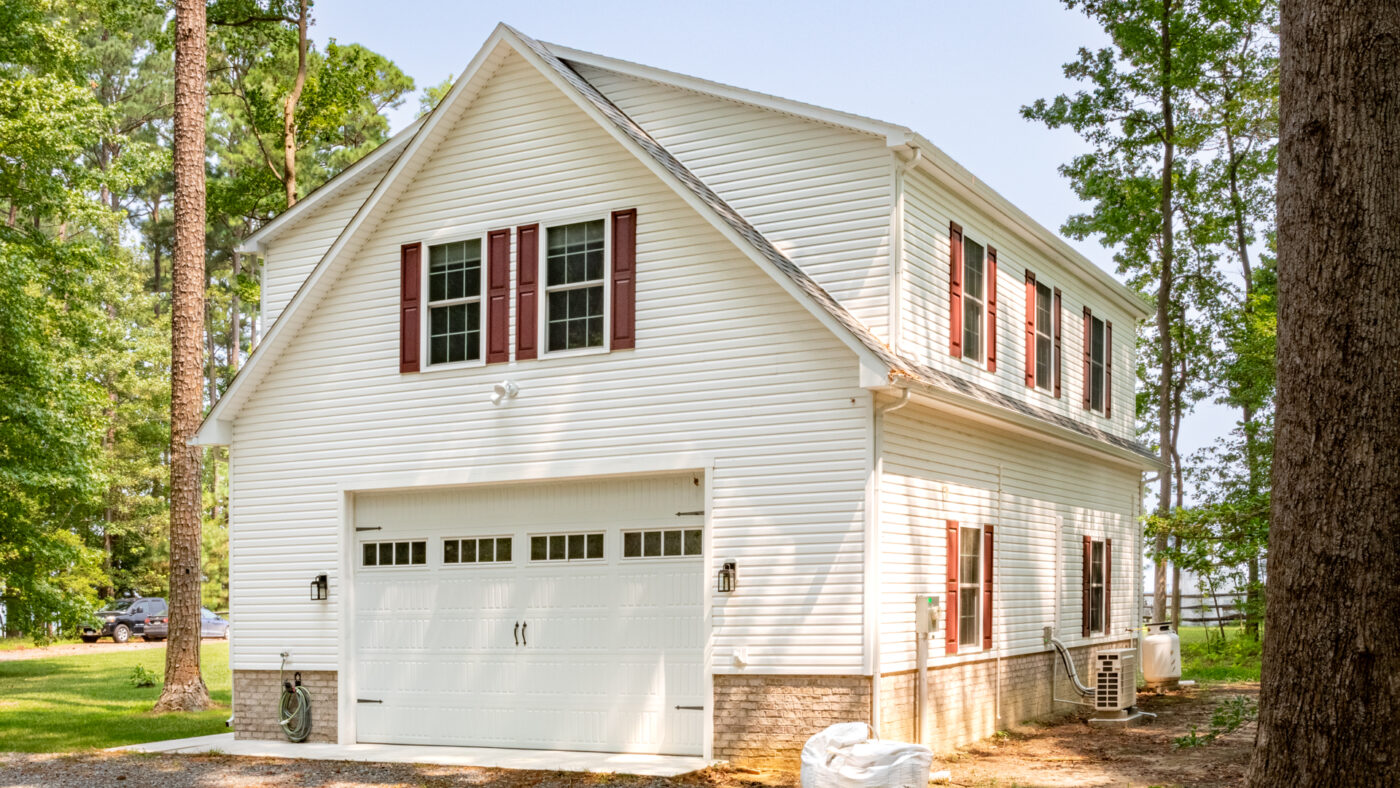
Whether you know what size garage you need or not, we have many different styles and sizes that will help fuel your creative wheels. From a Standard Workshop Garage for one or two cars to a Legacy 2-Story Workshop with space for an apartment or extra storage, you are sure to find an option that you will need.
If you’d like to know more exact prices before you get deep into planning, get a free quote from our detached garage builders! Our team of experts is more than ready and willing to help you design and upgrade the garage of your dreams.
We understand that getting a detached garage built is not a coincidence. It takes planning, budget analysis, design consultation, and much more. But with the right knowledge and assistance, you can do it!
We would love to have a free design consultation with you which would include a free estimate. We’ll help you figure out much it will cost to build the detached garage of your dreams. Don’t hesitate to reach out to our team for a free consultation.
Call us at 717-442-3281.
Create the building of your dreams by customizing a design in 3D. You can also call us at 717-442-3281. We're here to assist you!